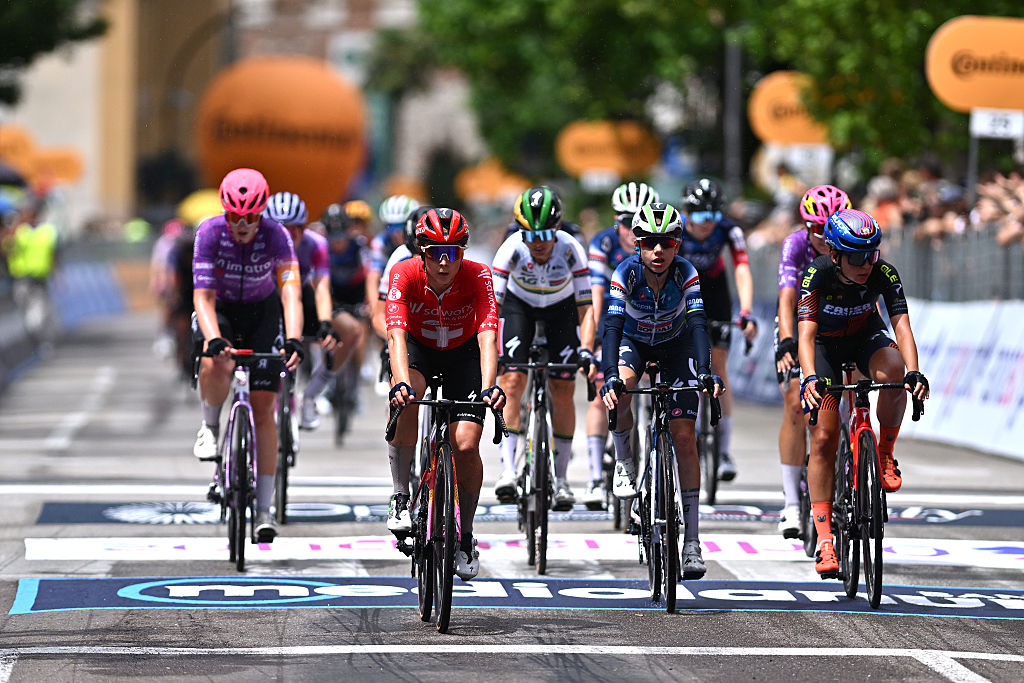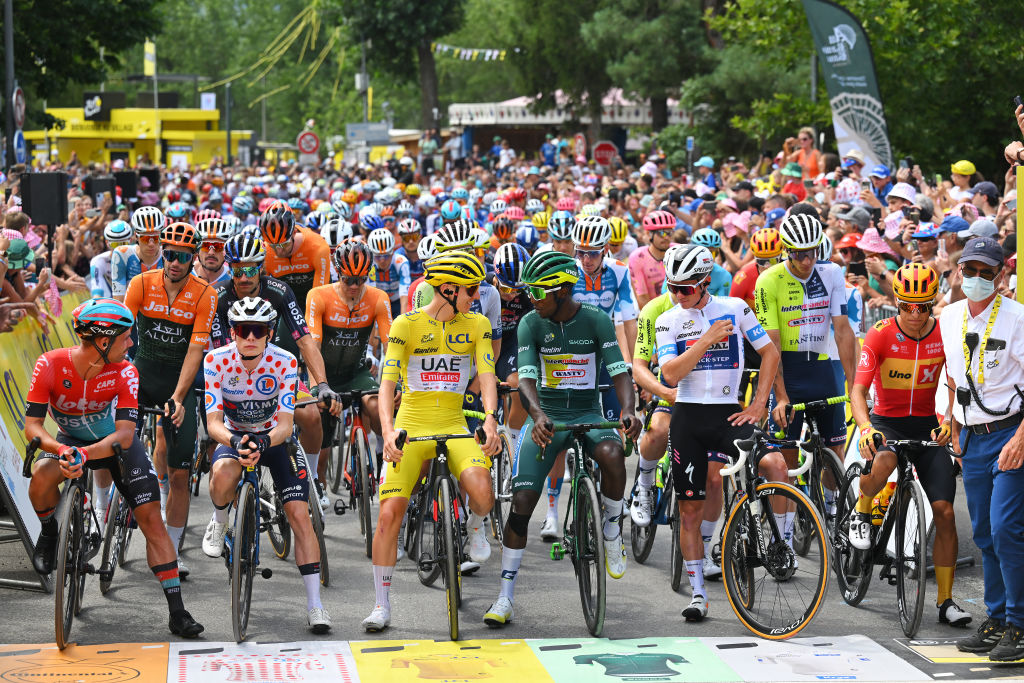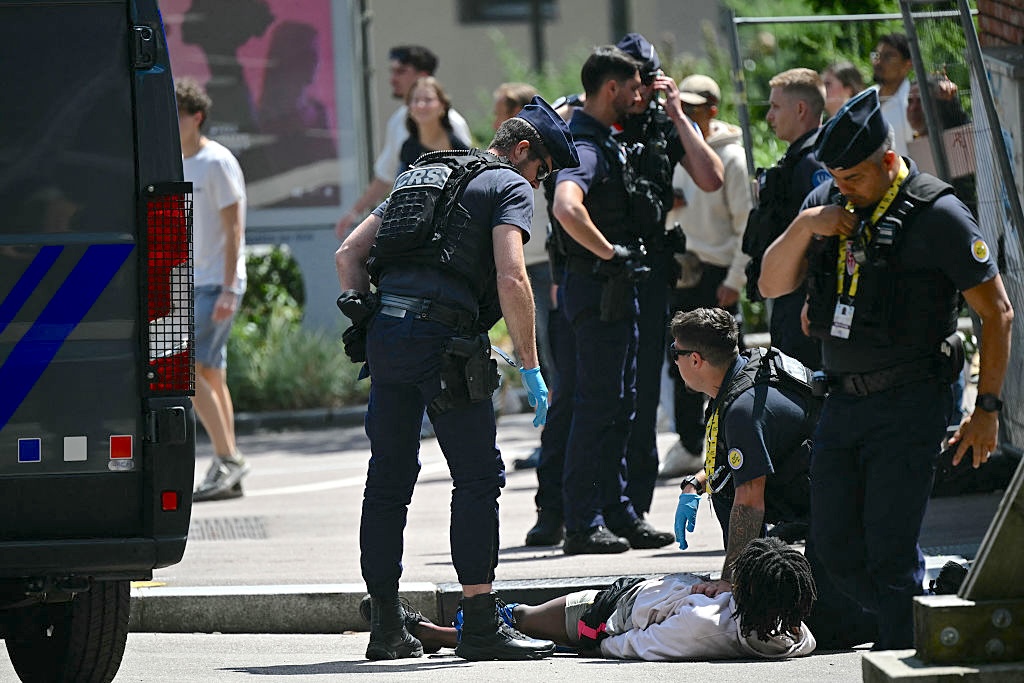Paris Olympics: Kristen Faulkner shocks favourites with solo victory in women's road race
Photo finish reveals Marianne Vos silver, Lotte Kopecky bronze leaving Blanka Vas out of medal position in fourth
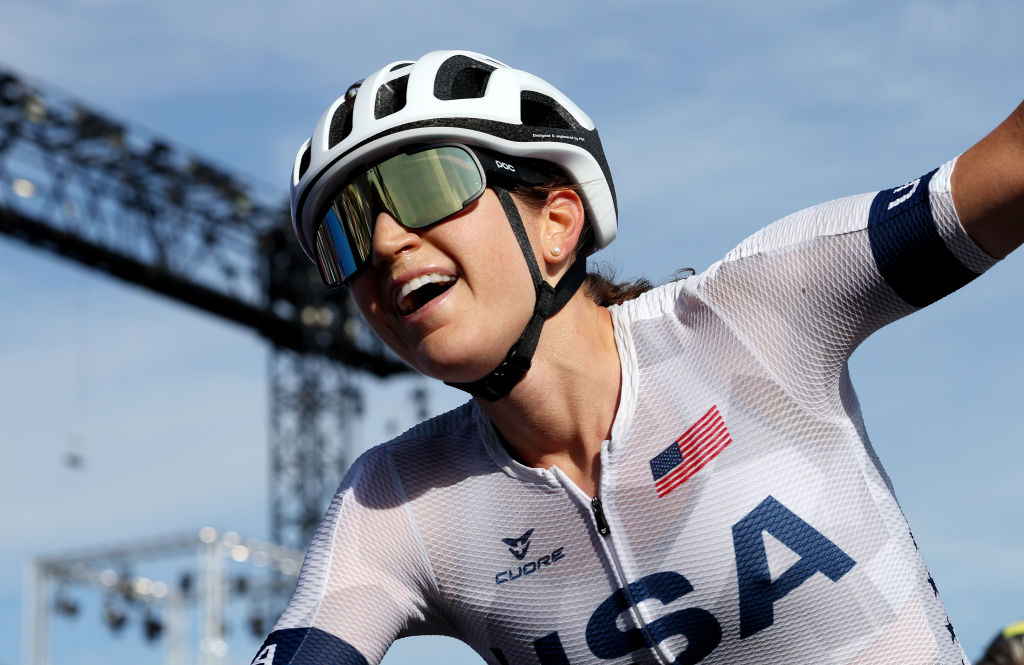
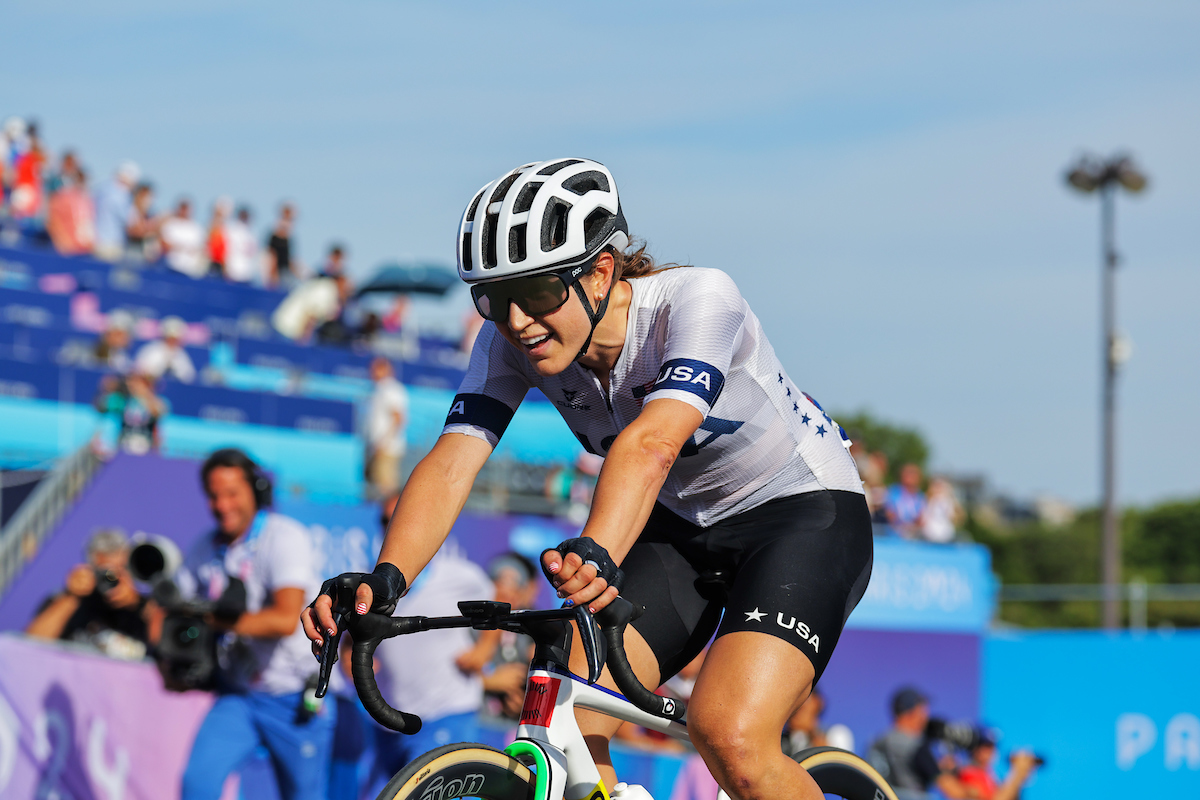
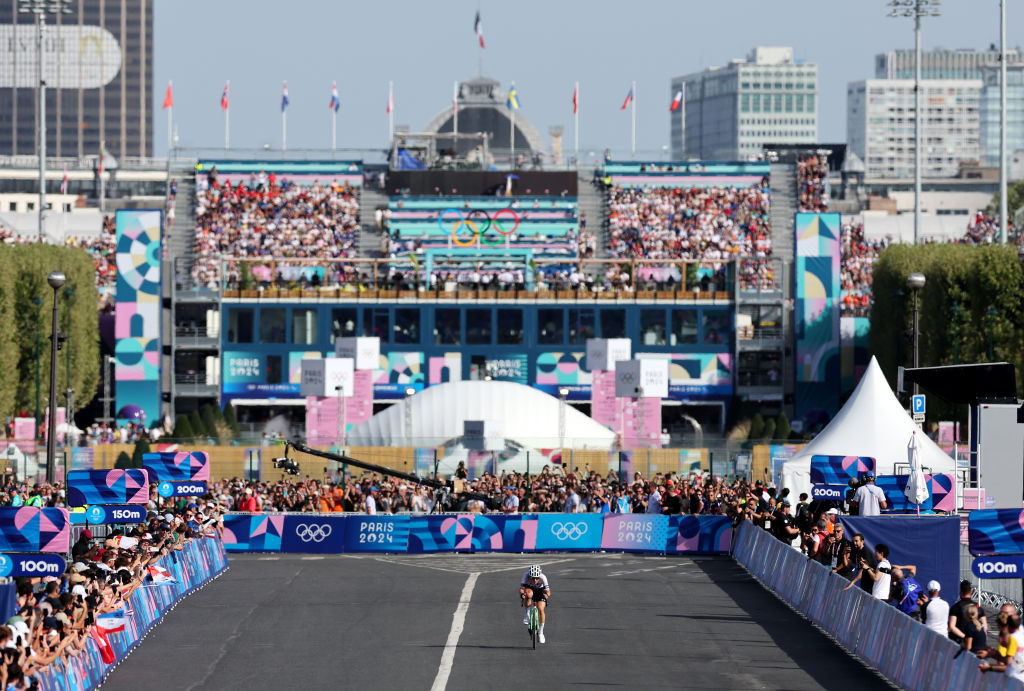
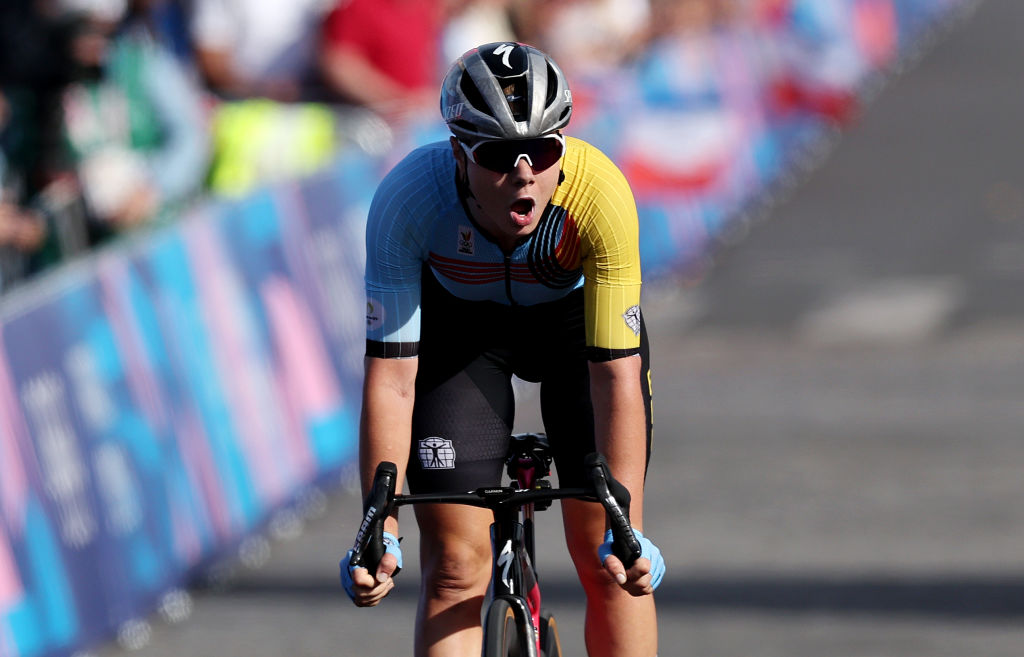
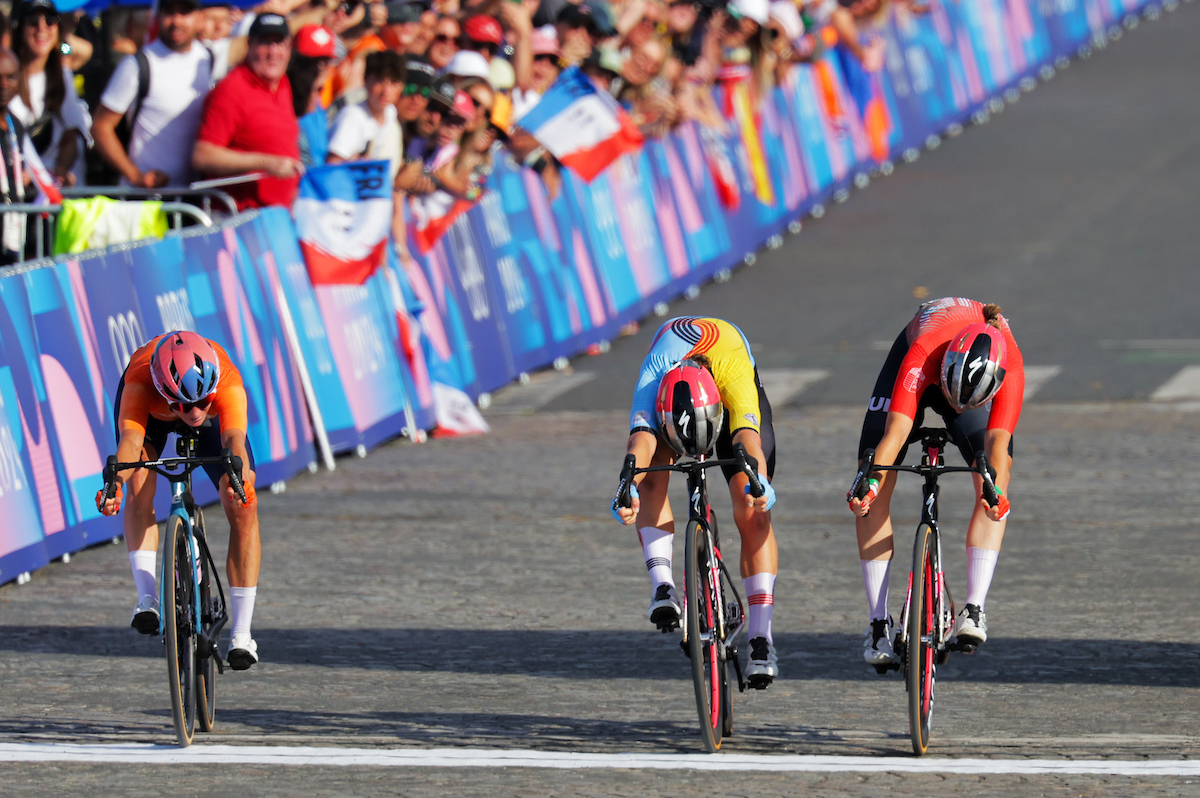
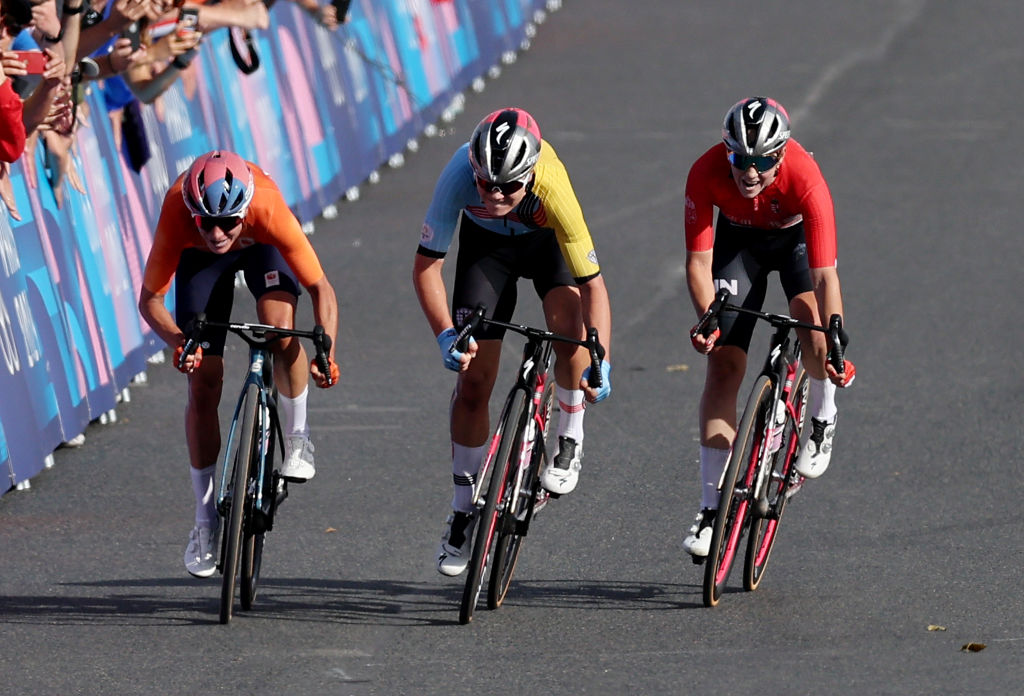
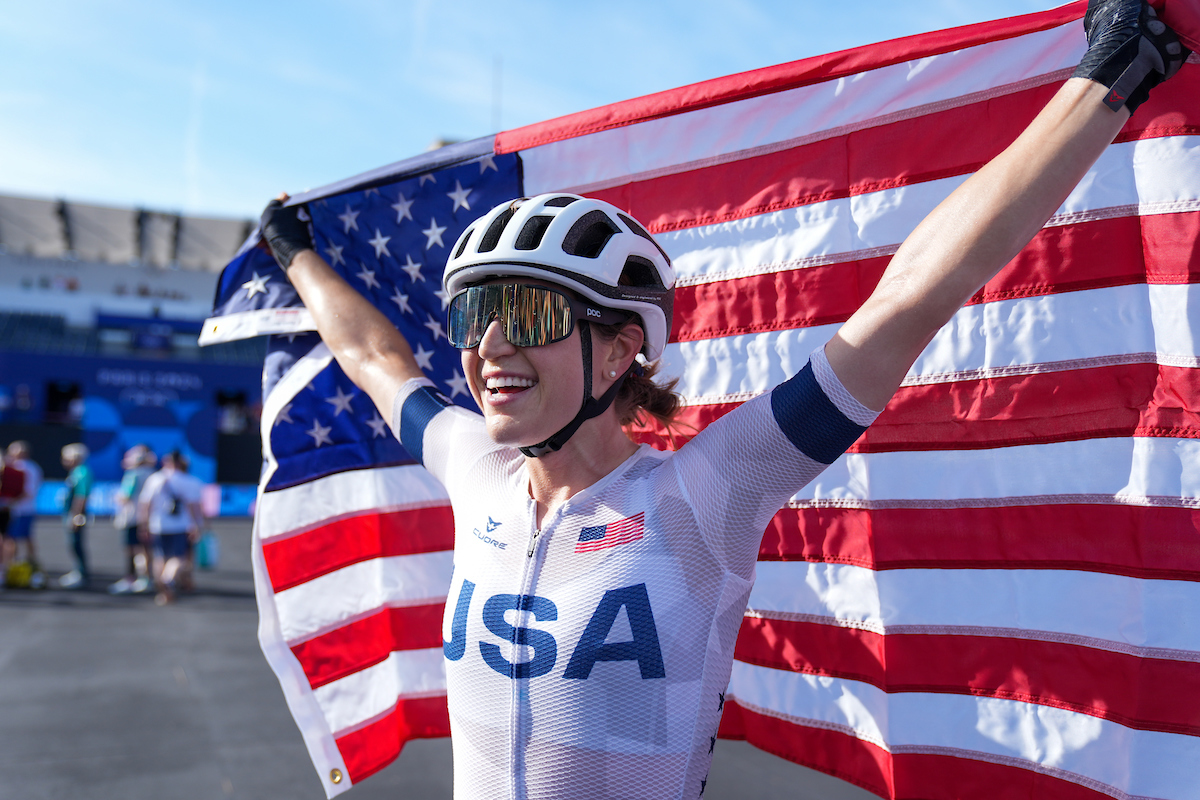
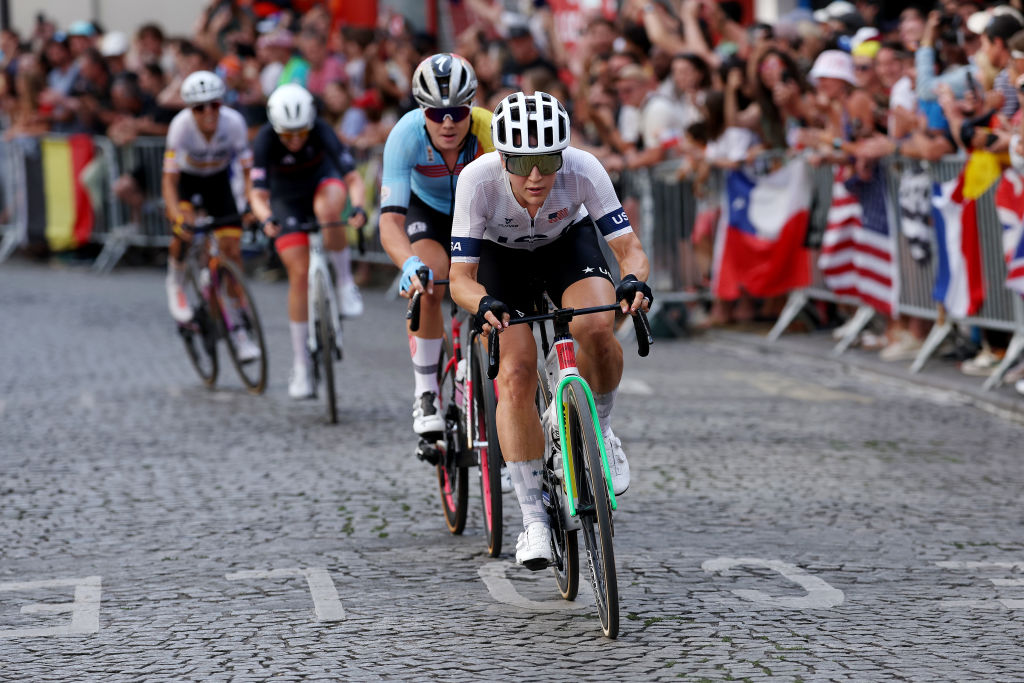
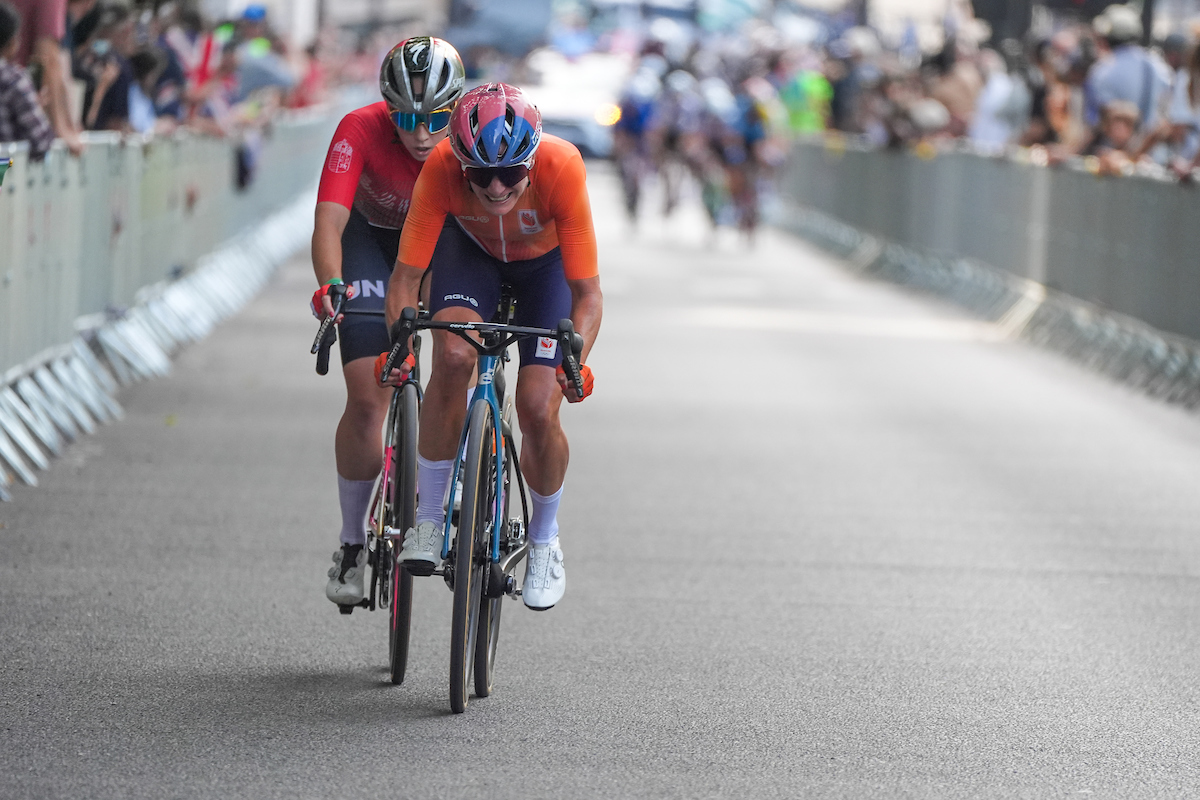
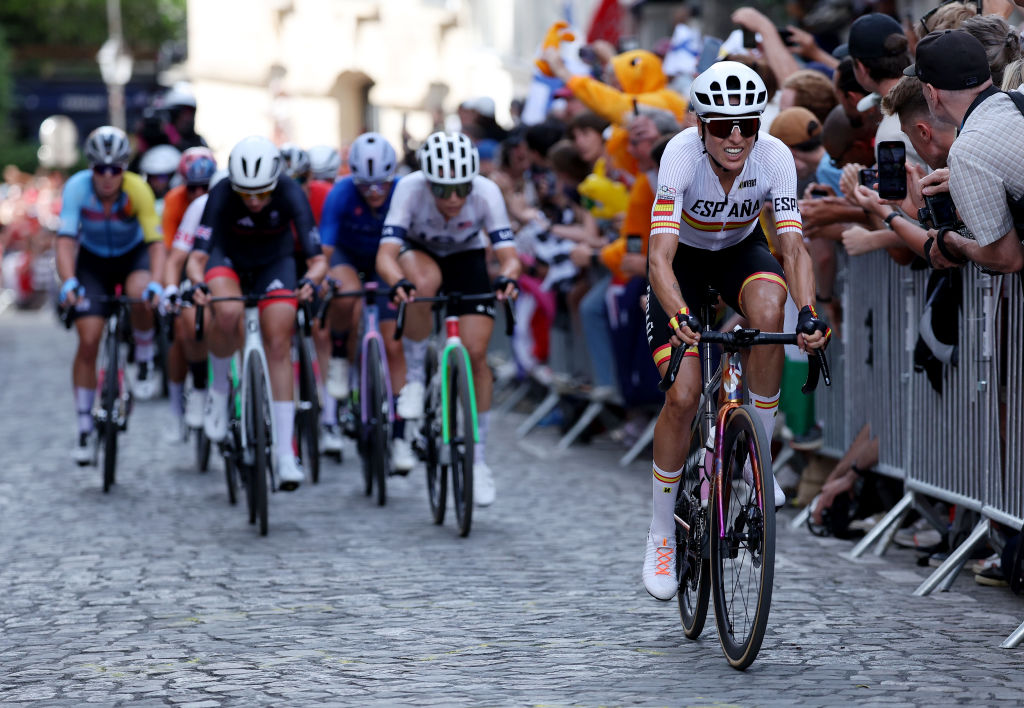
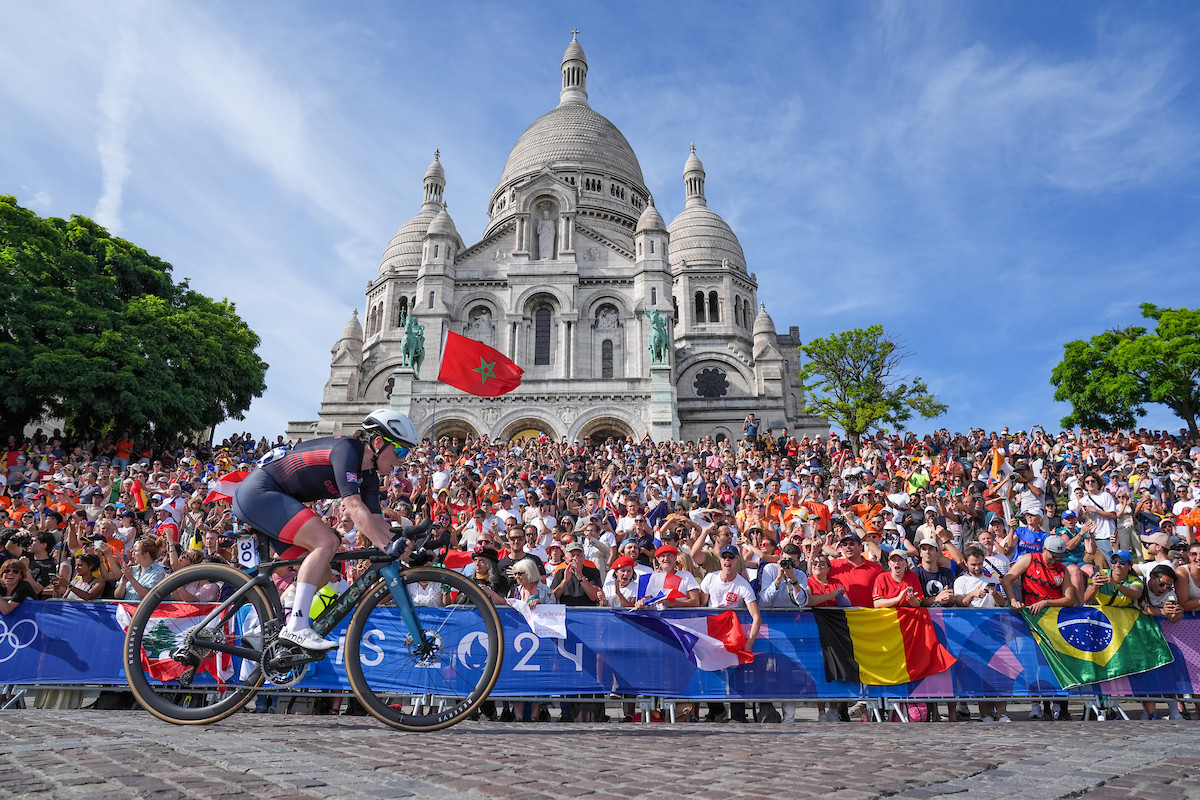
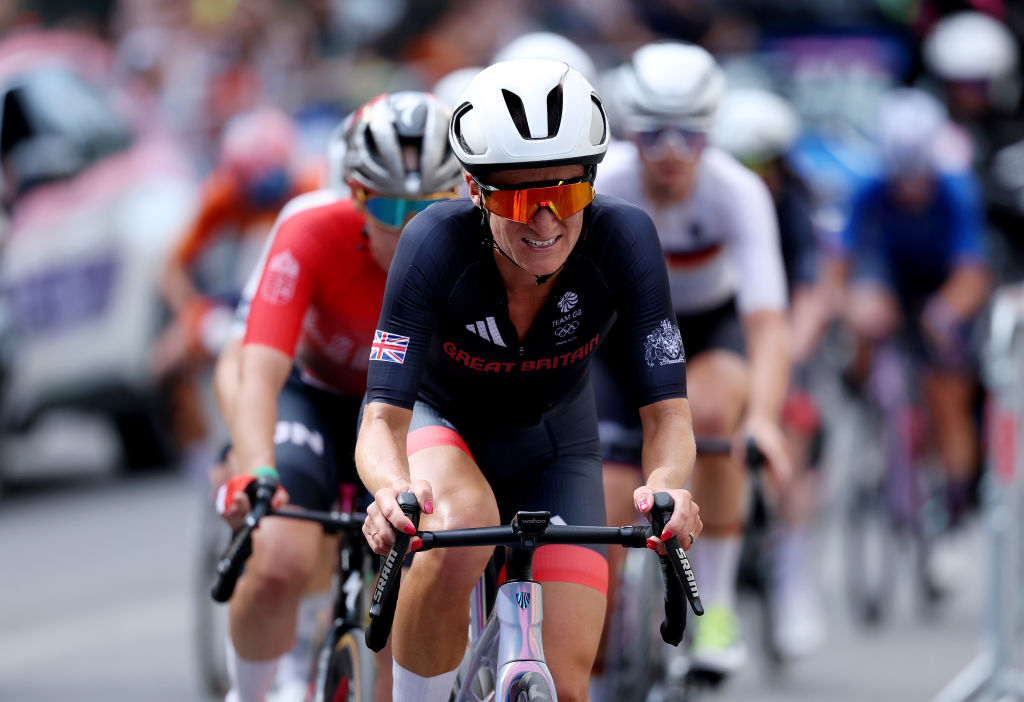
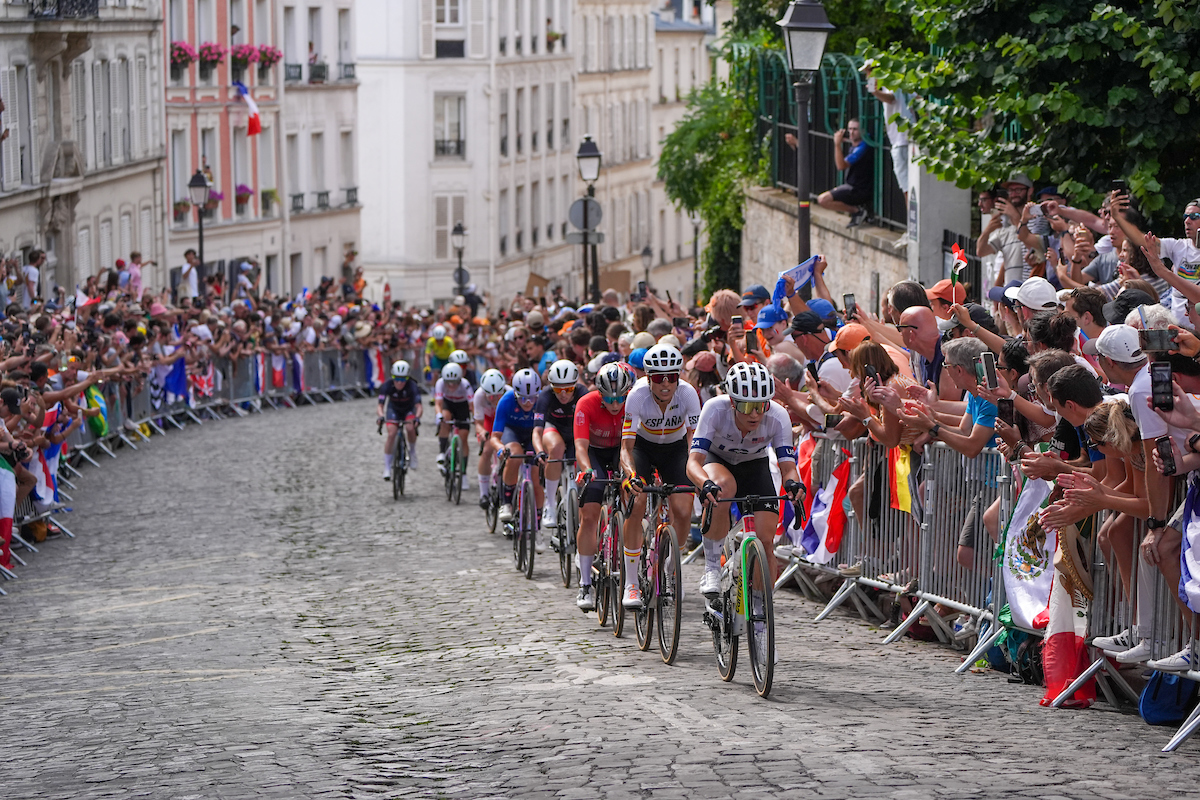
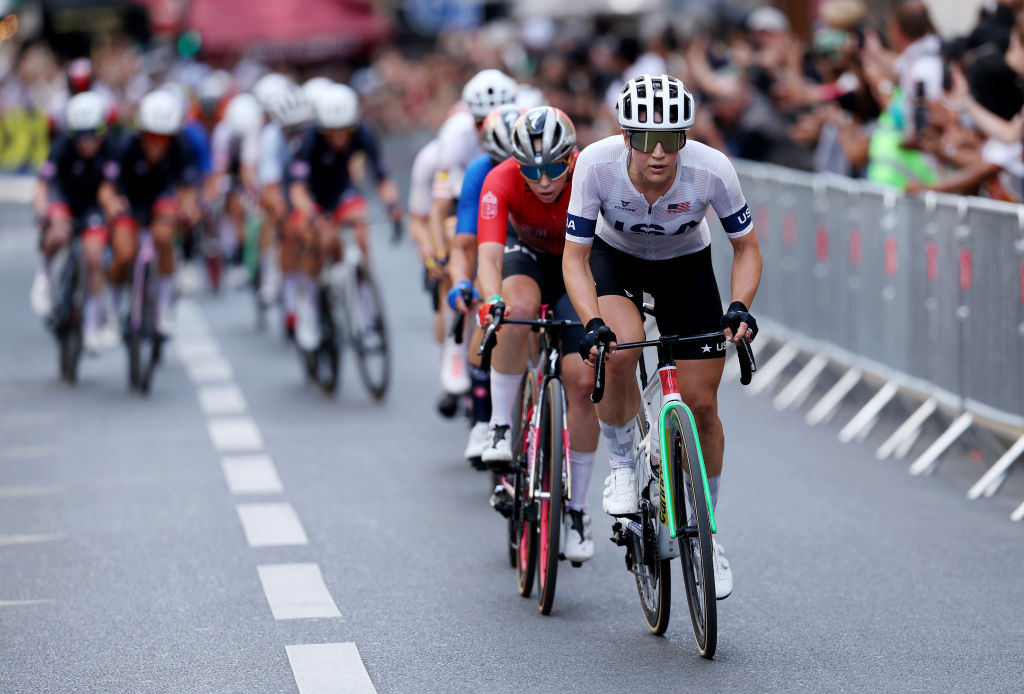
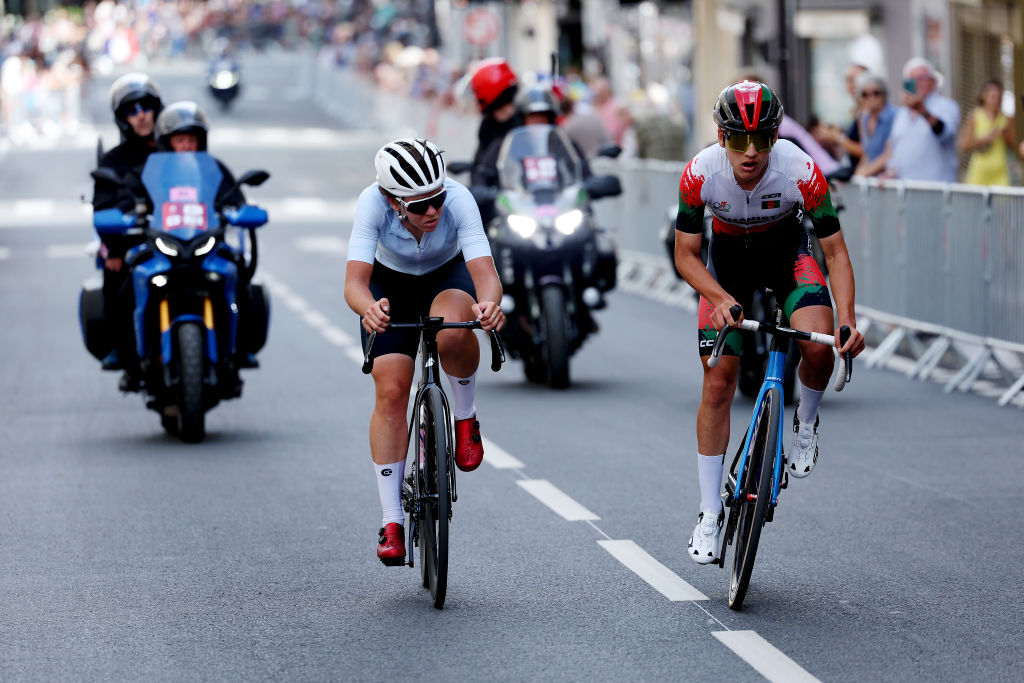
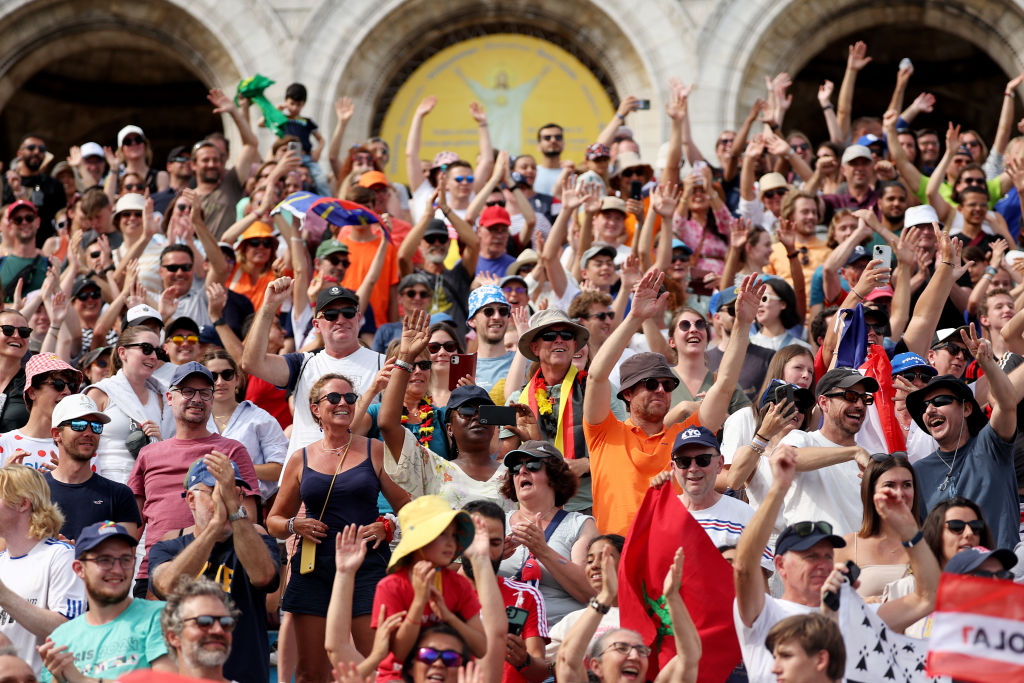
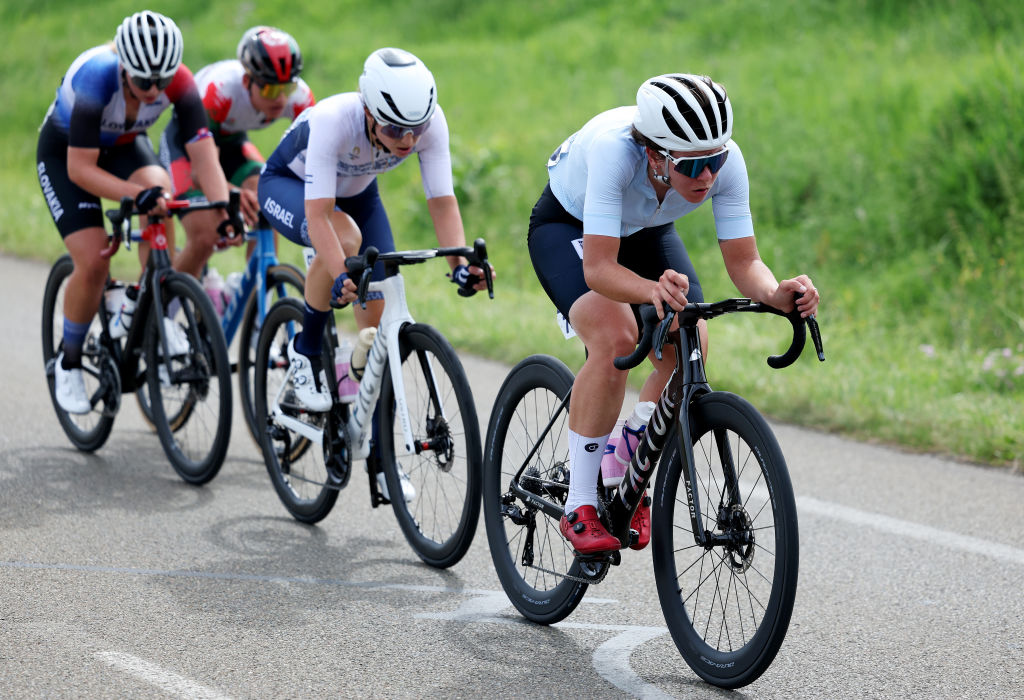
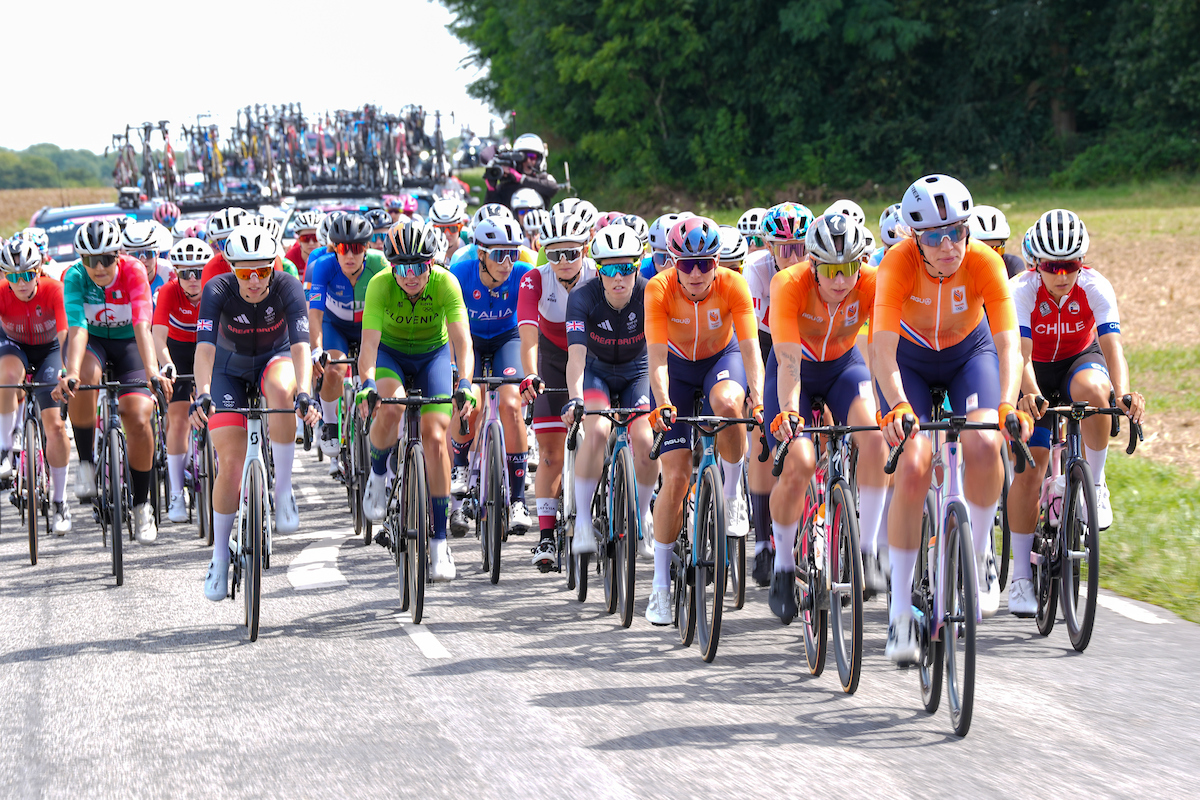
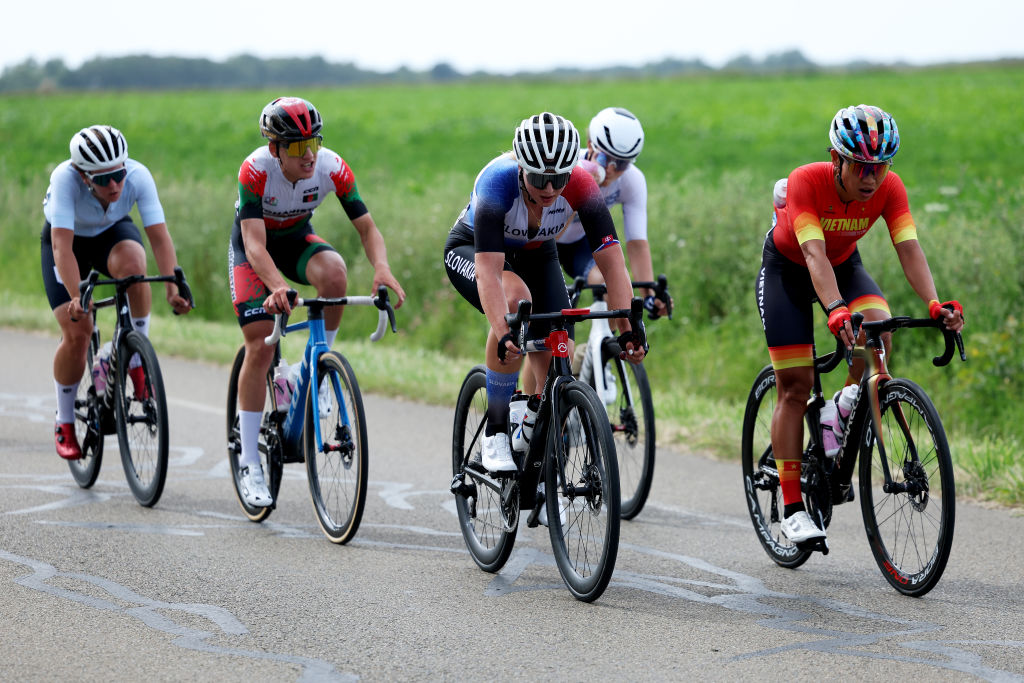
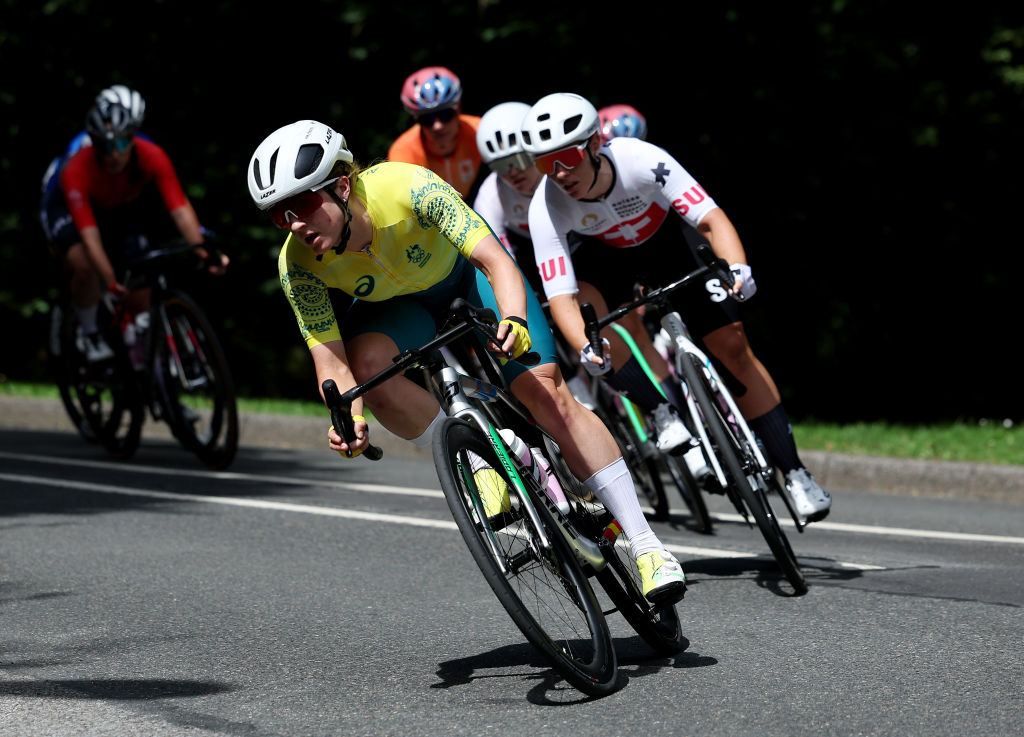
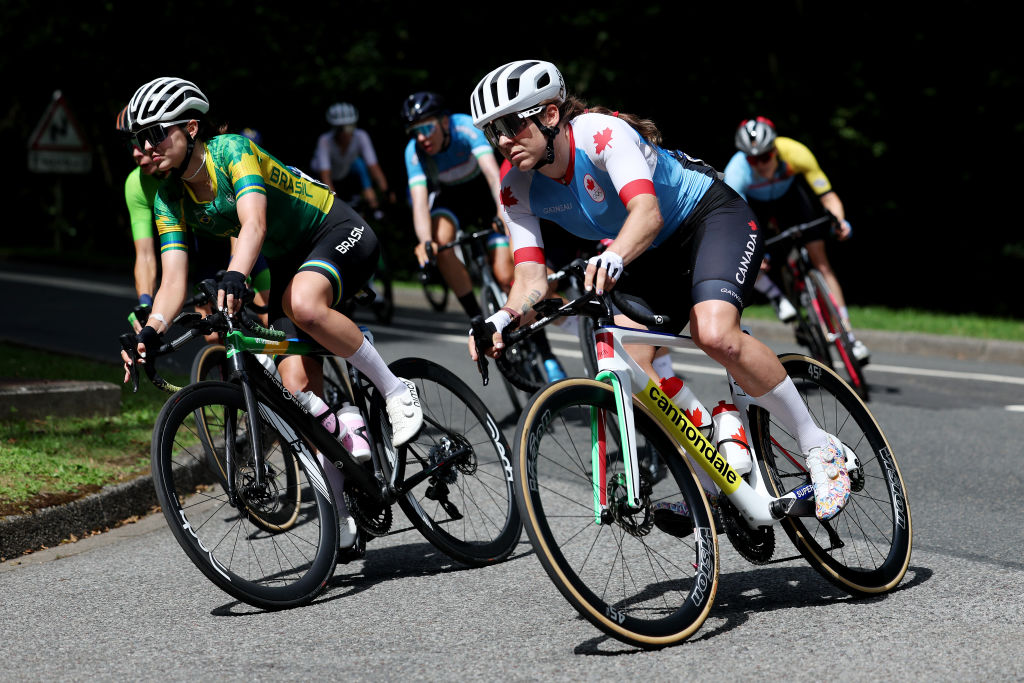
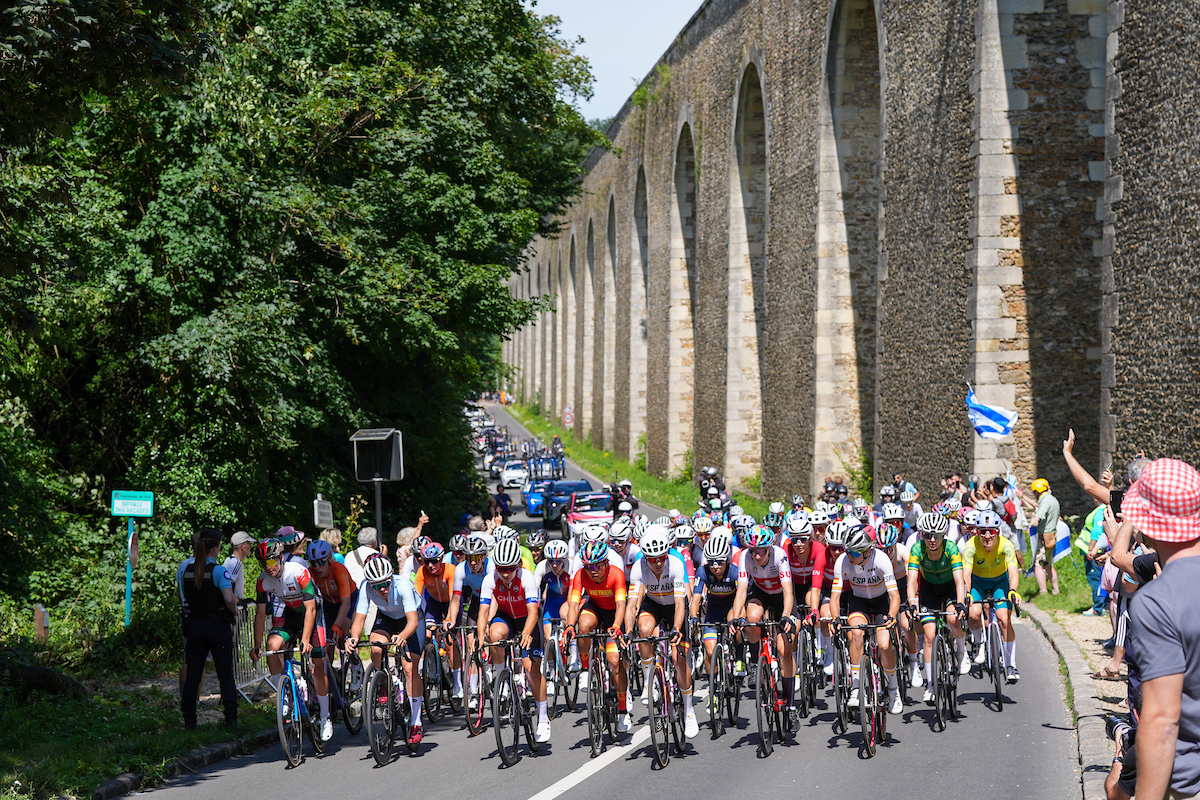
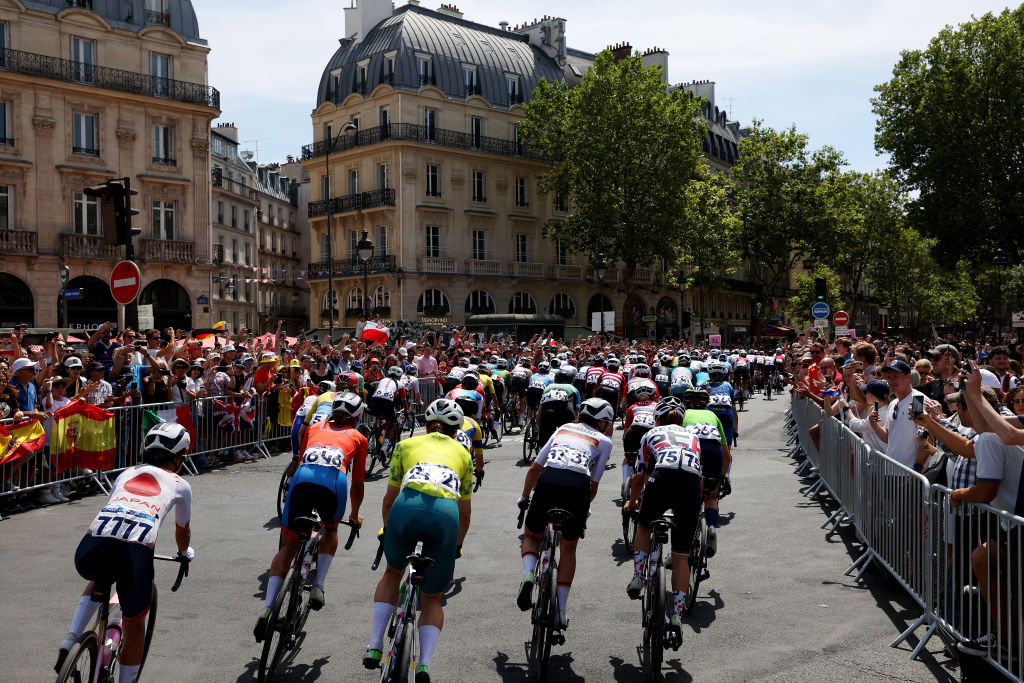
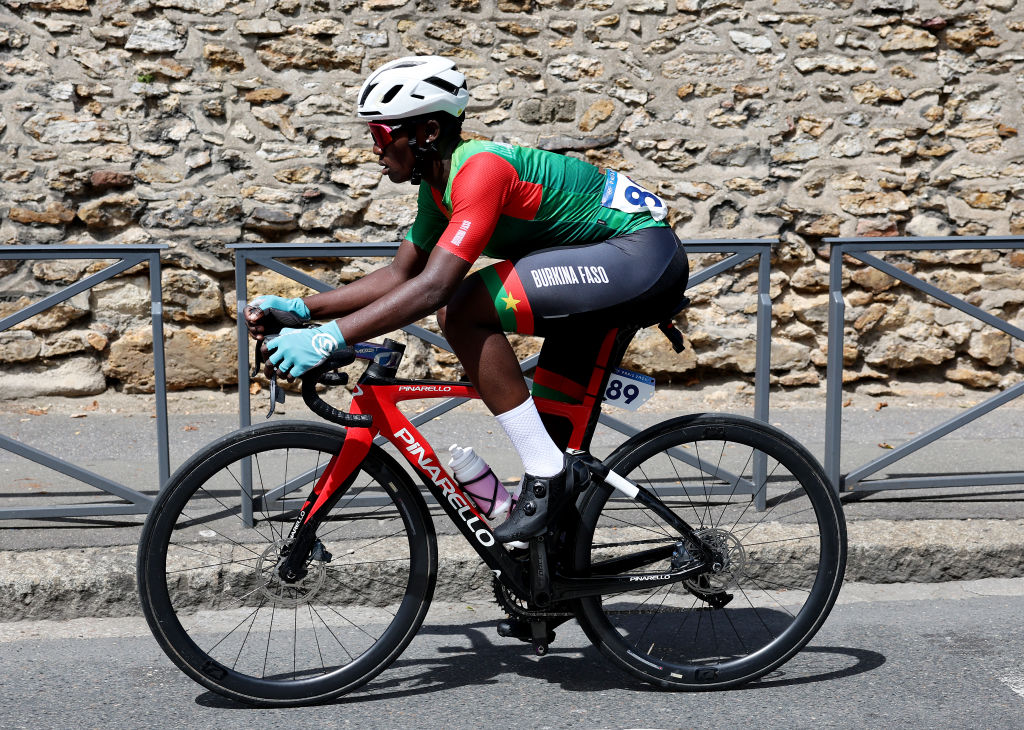
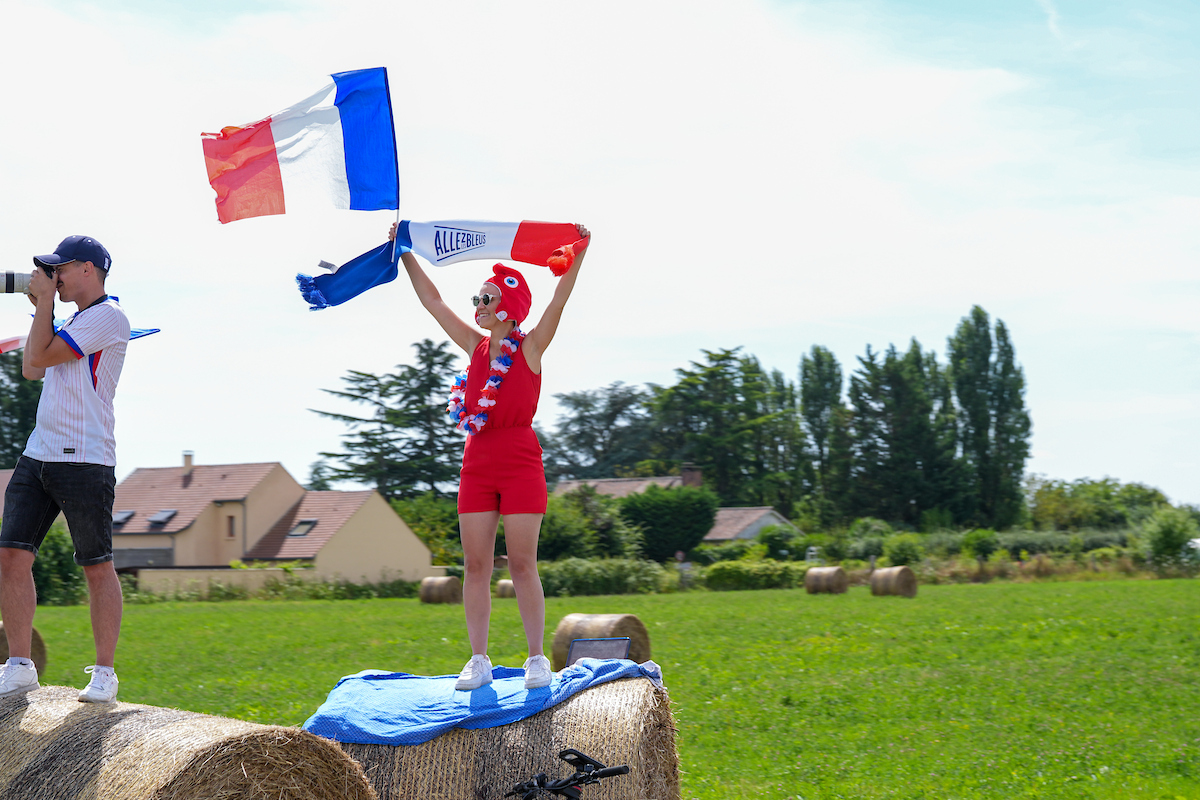
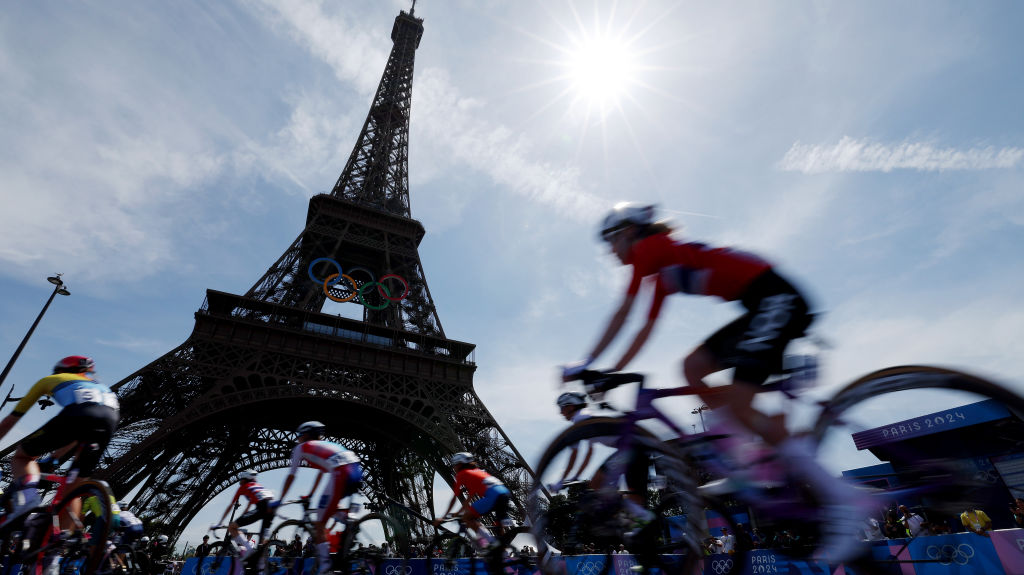
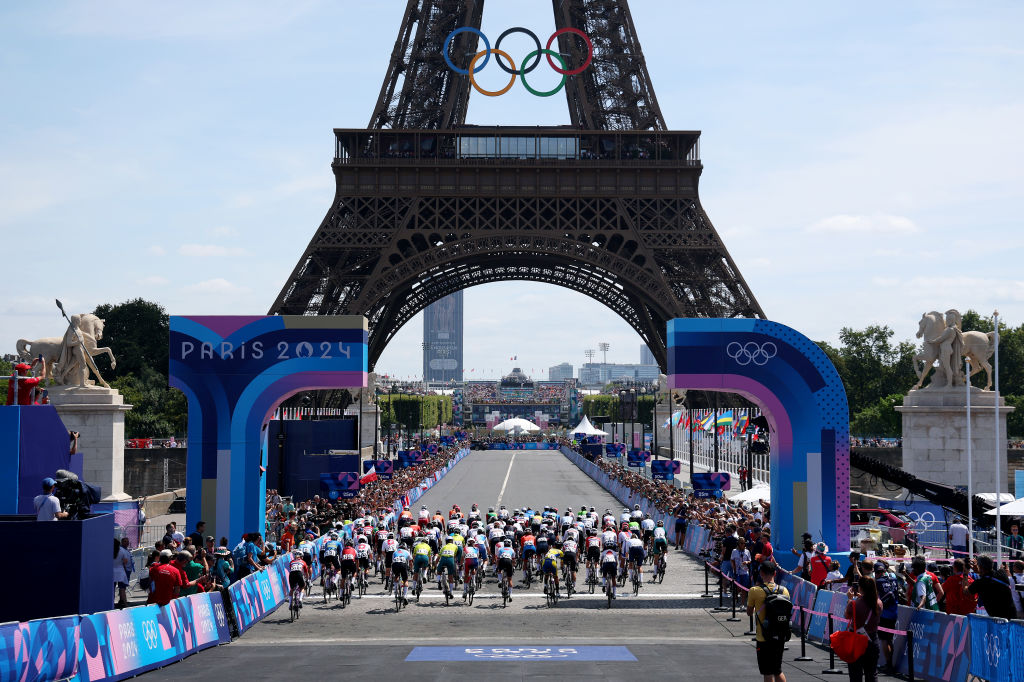
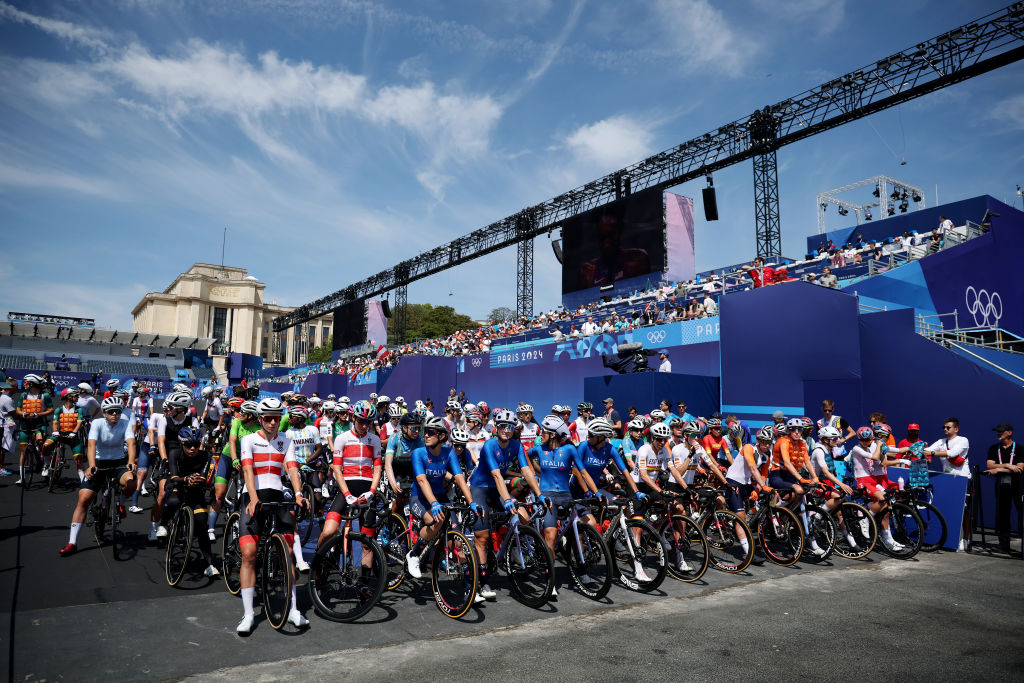
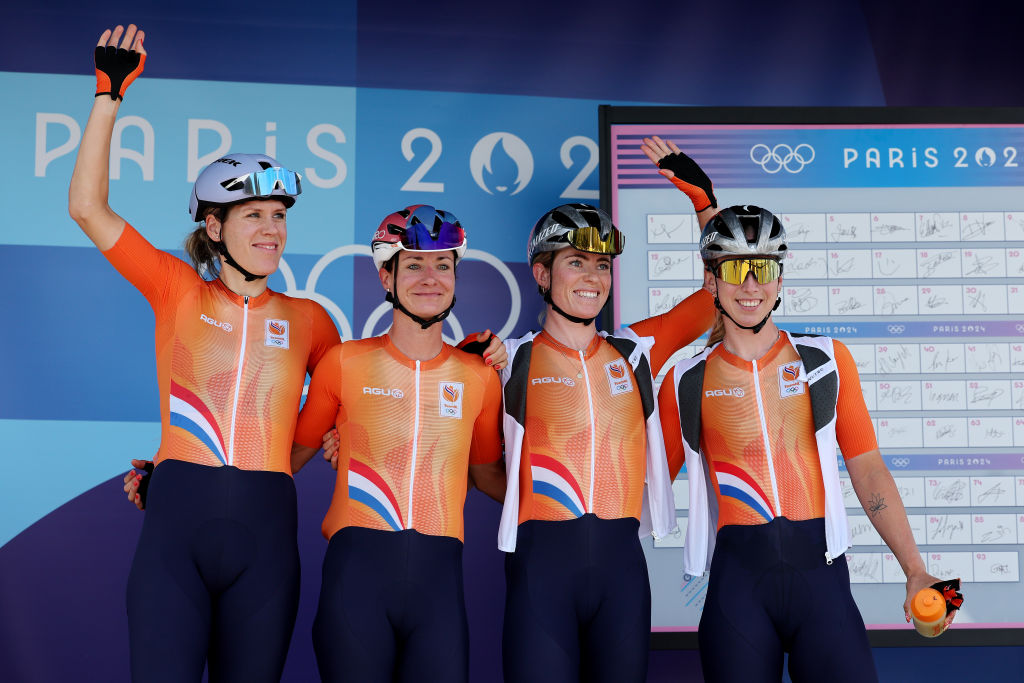
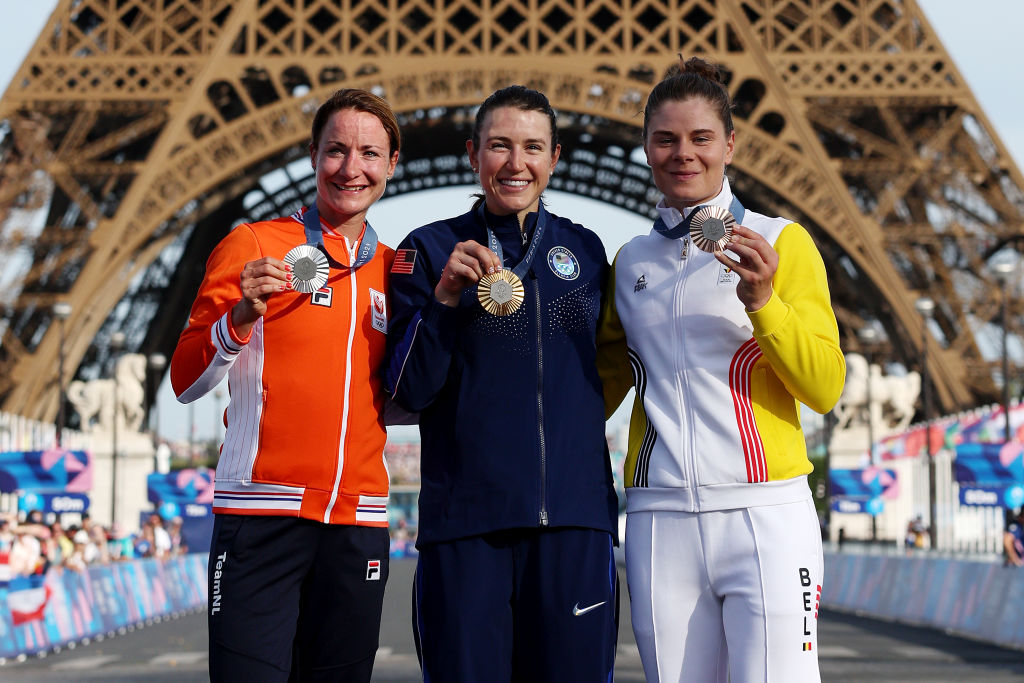
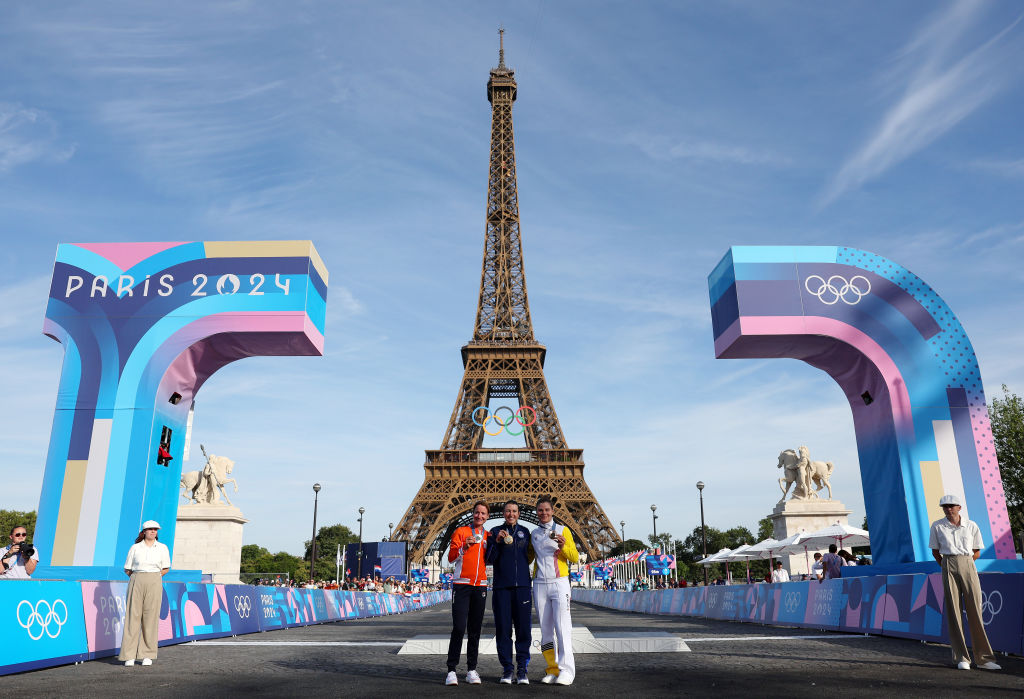
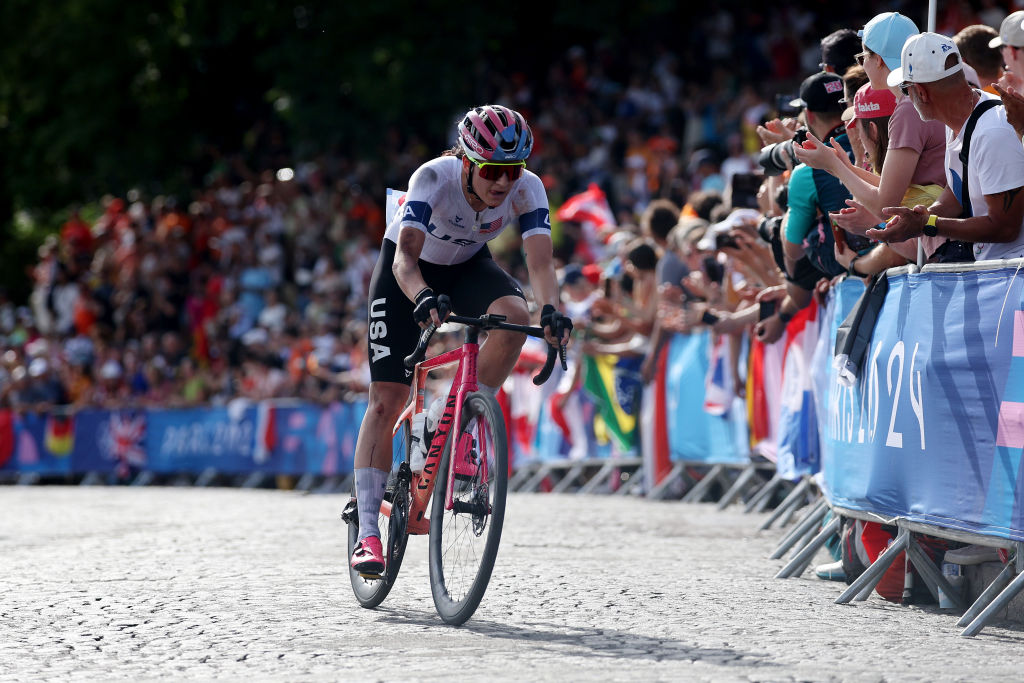
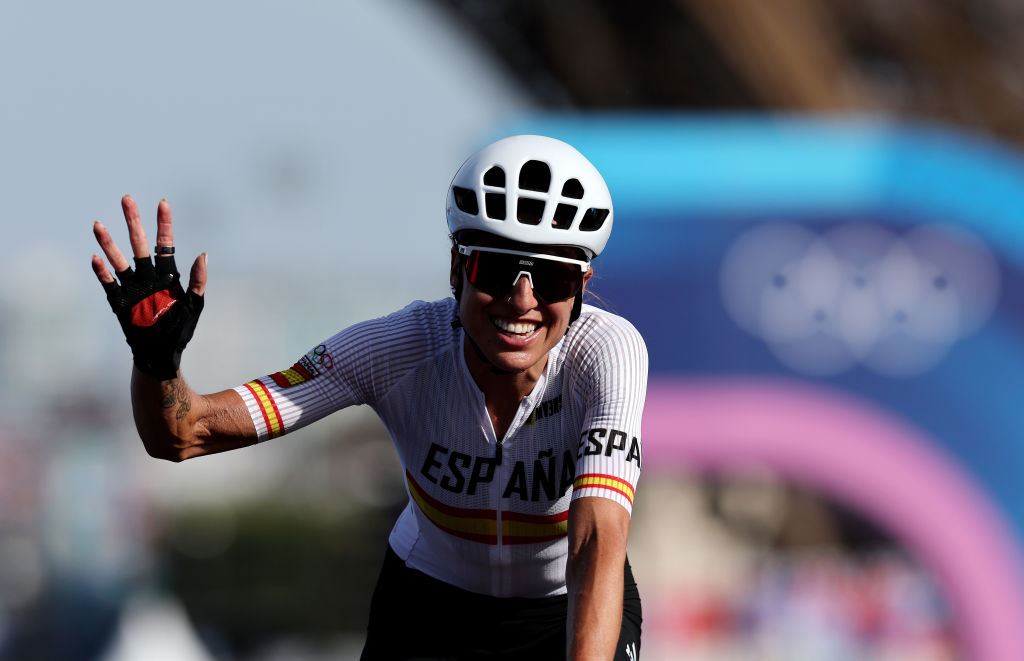
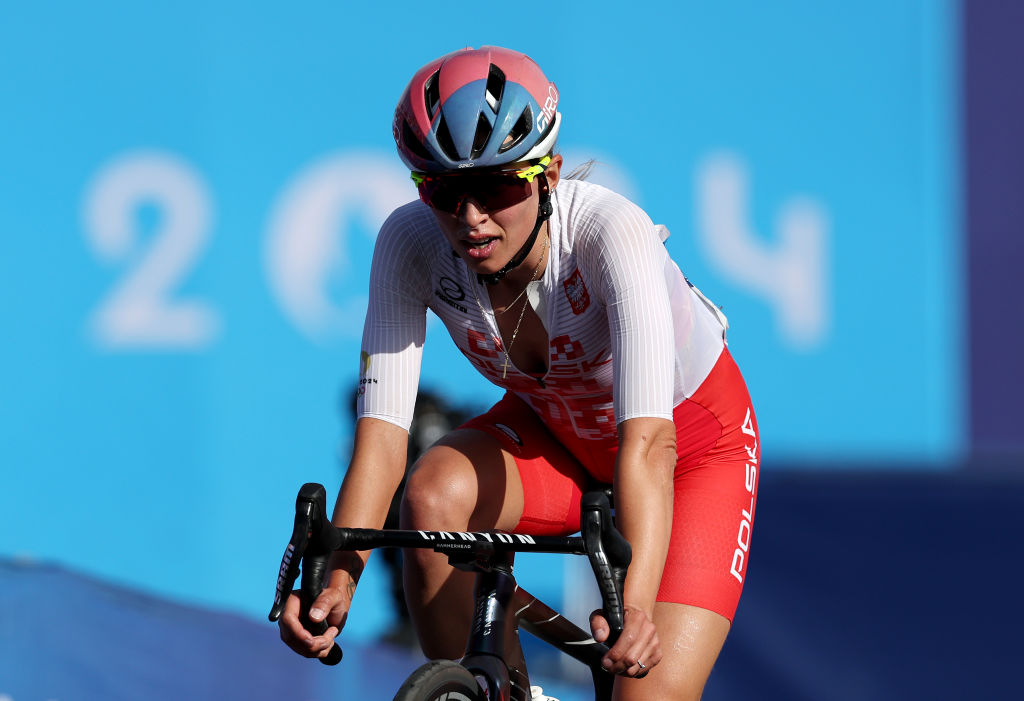
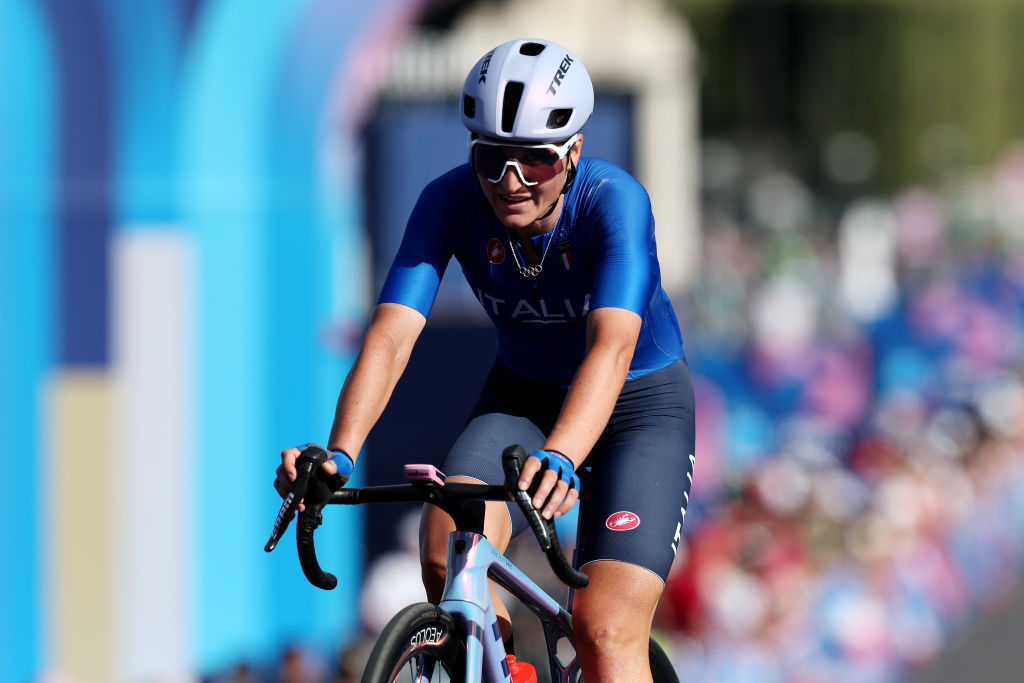
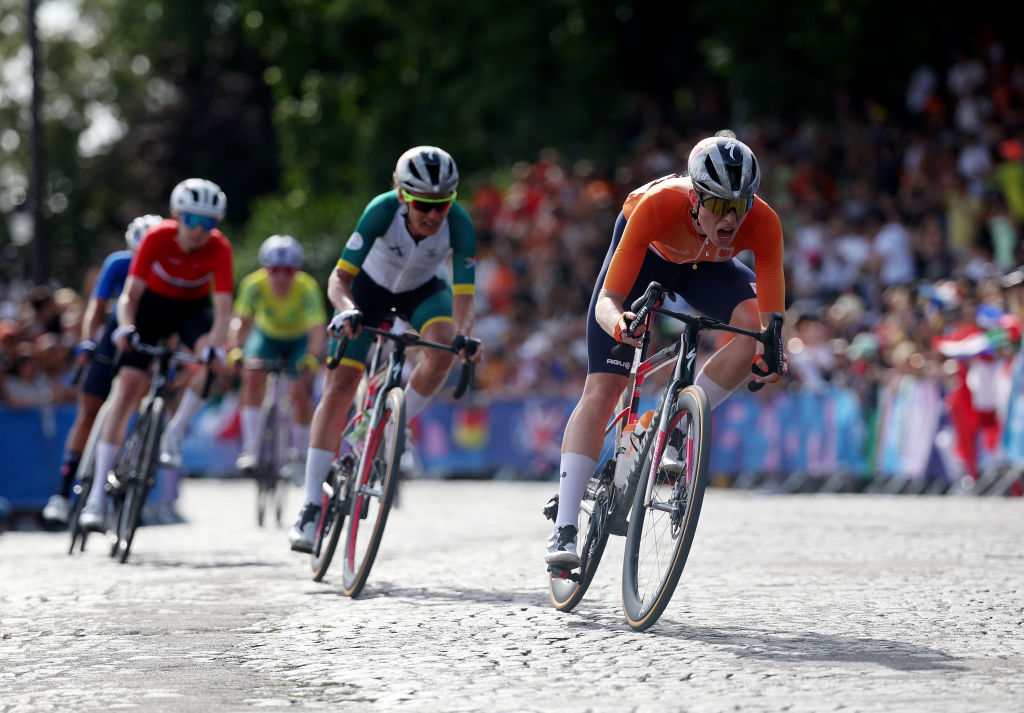
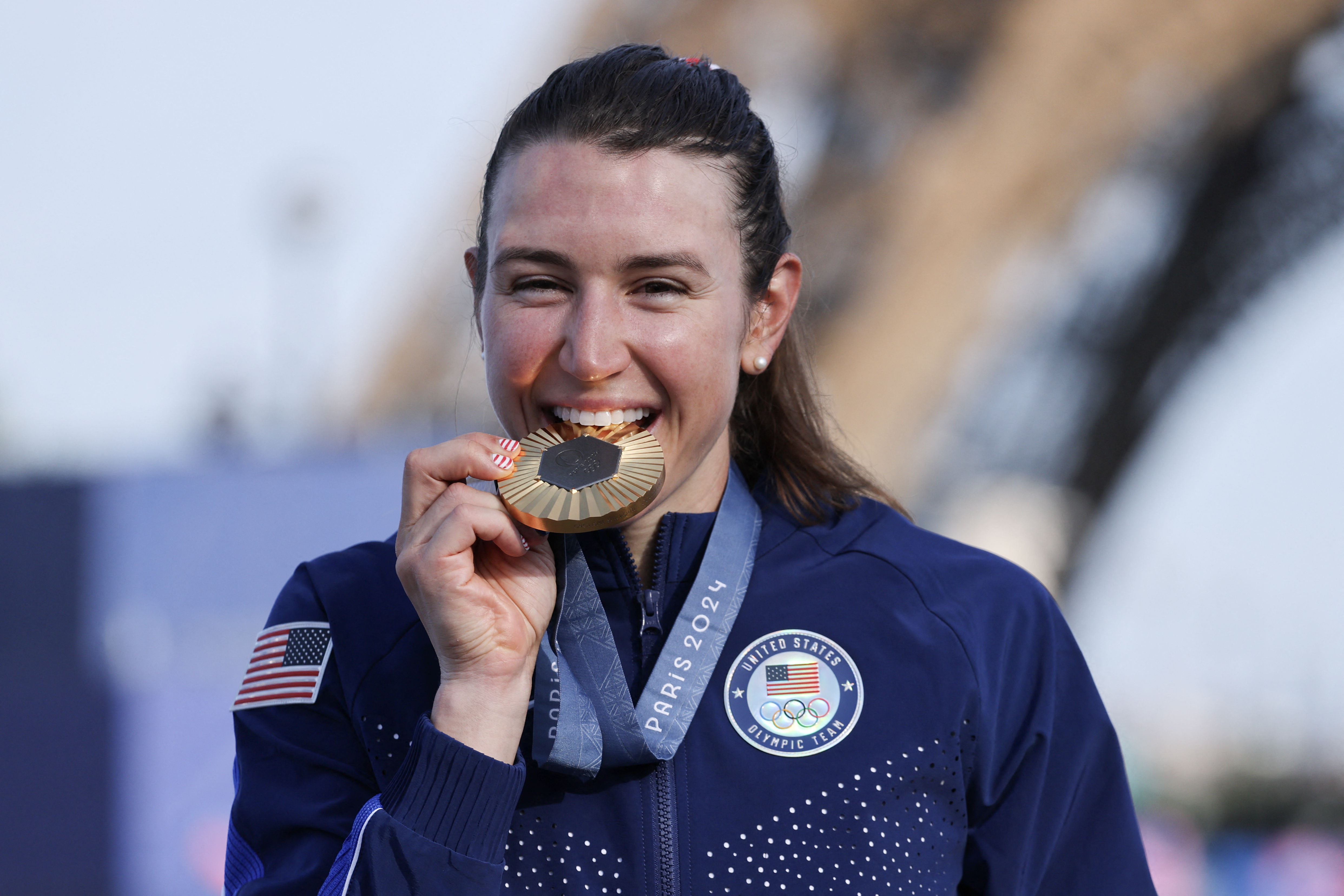
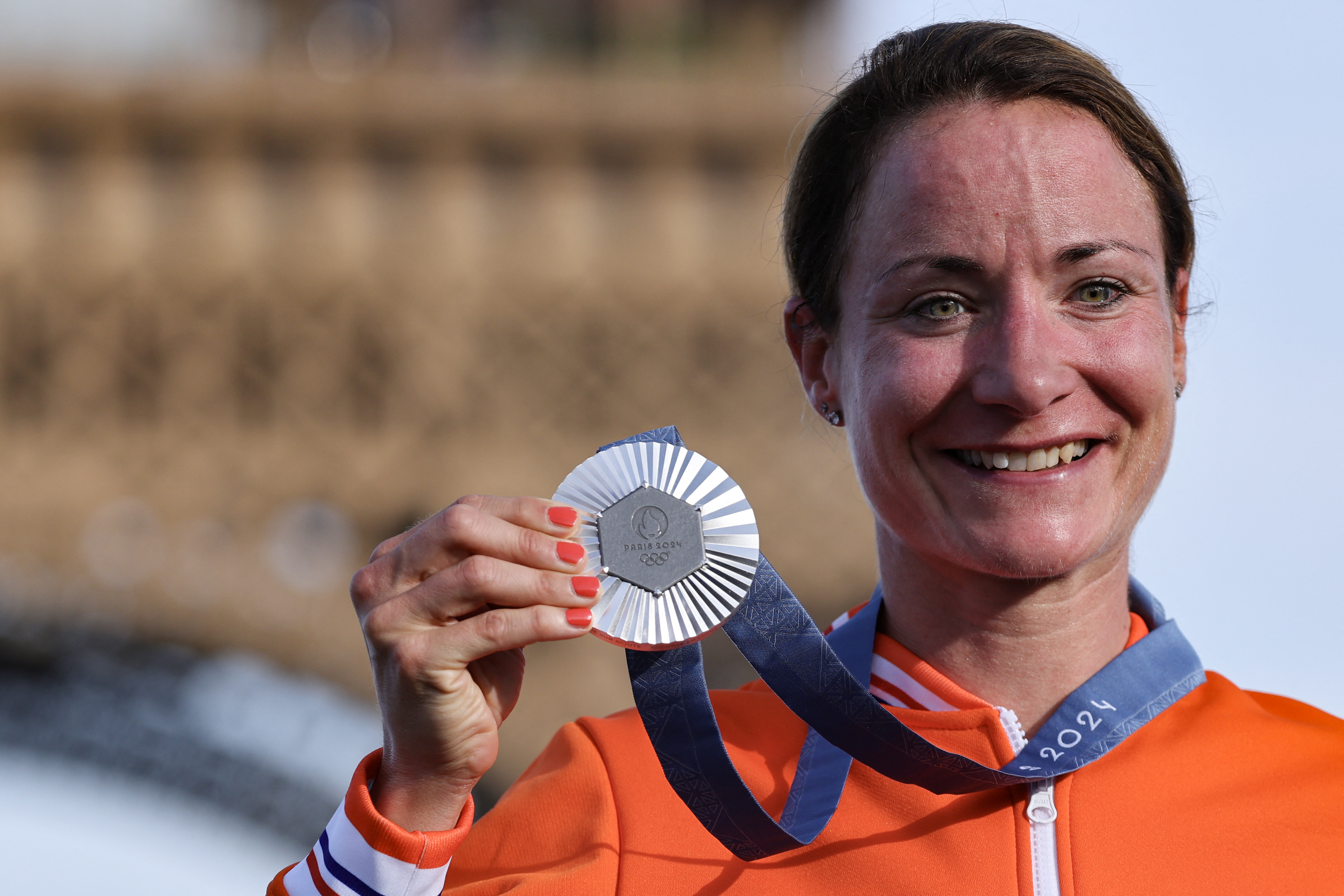
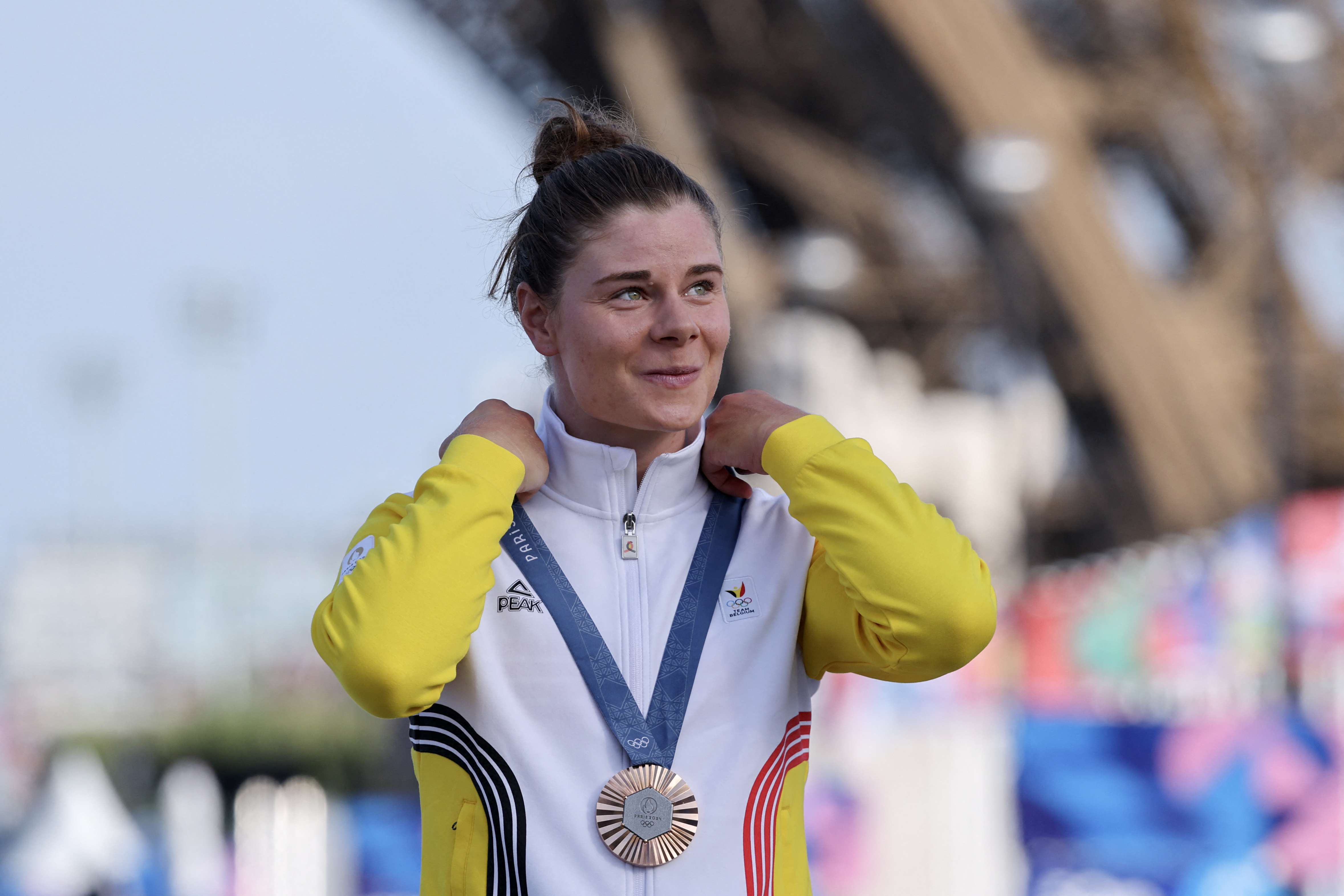
A spectacular, late solo attack netted Kristen Faulkner gold for the USA in the Paris Olympic Games women’s road race, surprising the top names and dropping her closest pursuers with three kilometres to go.
Silver went to veteran star Marianne Vos (Netherlands) in a three-rider chase group, with leading favourite Lotte Kopecky (Belgium) clinching bronze ahead of Hungarian champion Blanka Vas.
At the end of a dramatic race, Faulkner and Kopecky had bridged across to late breakaway duo Vas and Vos after the third and final ascent of the Butte Montmartre, with Faulkner then immediately surging away alone once they crossed the River Seine.
A moment too long of hesitation meant the chasing trio could not hope to regain contact, allowing the 31-year-old from Alaska to take USA’s first Olympic road race gold since Connie Carpenter-Phinney in 1984.
“I feel like it’s a dream come true. I took a really big risk a few years ago to come to pursue my dream and I made it happen,” she said. “It's the best feeling in the world, I don't know how to describe it.”
As for how it felt to beat two of the biggest names in professional cycling, she said, “I knew that it would be a really tough race but if I was racing to win. That was a promise I made to my team pursuit teammates.
“I had high hopes. I’m racing Team Pursuit in two days and so I said I’d only do the road race if I felt strong and felt I had a chance of a medal.”
How it unfolded
A 92-strong field began the 157.6km course in central Paris in similarly warm, dry conditions to Saturday’s men’s road race. After just a few minutes, Burkina Faso’s Awa Bamogo already decided to go it alone. But while the first climb of the nine classified ascents of the day, the Côte des Gardes, put paid to her early adventure, another solo breakaway by Nora Jencusova (Slovakia) immediately opted to try and defy the peloton.
Yet more early movers then emerged as Afghanistan’s Yulduz Hashimi darted out of the pack, followed by her sister Fariba, Vietnam’s Thi That Nguyen, Israel’s Rotem Gafinovitz and Hannah Tserakh (Neutral). Powering along at a brisk pace along the rolling country roads and past recently harvested wheat fields, the five chasers finally closed in on the lone early breakaway with around 110 kilometres to go.
Thanks to their enthusiasm for leading in such a major event, the gap for the half dozen ahead reached well over six minutes. This in turn forced favourites Belgium and then Netherlands, one of a handful of teams with four riders, to defend the peloton’s interests, with veteran Ellen van Dijk doing much of the spadework in her last-ever Games.
The subsequent rise in pace left defending Olympic champion Anna Kiesenhofer (Austria), already on the back foot after several bad crashes in the time trial a week earlier, struggling slightly. But it did not prevent another chaser, Olga Zabelinskaya (Uzbekistan) making a courageous but ultimately futile solo effort to bridge across to the six.
The working alliance in the six-rider early break was so effective that they not only waited for Jencusova when her chain dropped, they even tried to help her reship it. But while they managed to do so, it was clear the half dozen race leaders could not hang around, as Van Dijk made the most of her time trialling prowess to blast past counter attacker Zabelinskaya and shred the break's lead to just two minutes in the process.
For all Van Dijk’s work was impressive, as the kilometres clicked down the bunch was growing increasingly restless behind her, finally seeing veteran Mavi García (Spain) make the first serious move by one of the top contenders.
Notably sharper digs by Olympic silver TT medallist Anna Henderson and Great Britain teammate Elizabeth Deignan then caused another couple of sizable rents in the size of the pack and a lengthy period of probing attacks quickly developed, shredding the peloton to perhaps 40 riders at most.
Paris circuits
Back in the suburbs of Paris, Henderson made one dangerous move, but it was when 2012 gold medallist Vos briefly counter-attacked that the alarm bells truly went off in the much-reduced pack.
The break’s advantage was tumbling fast now, and the Netherlands continued to chase down challenges as best they could, snuffing out a probe by former Paris-Roubaix winner Alison Jackson (Canada) and another by Megan Armitage (Ireland). Vos remained the key guardian for the Netherlands at this point as the race roared alongside the River Seine. Then as the Butte Montmartre ascent approached and the last two survivors of the break, Fariba Hashimi (Afghanistan) and Hannah Tserakh (Neutral), all but threw in the towel, it was clear the race was reaching a pivotal moment.
Rather than an attack, though, initially it was a bad crash on the right side of the narrow, cobbled, road at the bottom of the Montmartre that really threw the race cards up in the air. Favourites like Kopecky, Lorena Wiebes and Demi Vollering (both Netherlands) were all stuck behind when Chloe Dygert (USA) fell heavily, and as a result they were powerless to stop Mavi Garcia from blasting past the break and ahead on the Butte Montmartre.
García’s climbing form combined with the crash meant just 10 riders could stay in the first group alongside the Spaniard: Deignan, Henderson and Pfeiffer Georgi (all Great Britain), Vos (Netherlands), Elisa Longo Borghini (Italy), Liane Lippert (Germany), Noemi Rüegg (Switzerland), Faulkner, Marta Lach (Poland) and Vas.
Crucially though, Kopecky was also quickly able to regain contact, meaning that her theoretically weaker team support was no longer relevant for the Belgian’s chances. The other top nation, the Netherlands arguably came off worse as a result of the crash, forcing them to burn out Vollering to try and bring their top contender, Wiebes back into play. But their pursuit proved to be a fruitless exercise, and as a result, essentially their race boiled down to seeing what a veteran player like Vos, clearly in great form, could now achieve in the front group of 12.
Given Britain’s superior numbers in that front group, logically Deignan worked hard to keep them clear, helping the dozen maintain a gap of 40 seconds with 38 kilometres to go. It was a perilously small advantage, though, and come the second of three ascents of the Butte Montmartre, though, the collaboration between the 12 became seriously limited.
Matters only worsened when Henderson tried to take advantage of Great Britain’s theoretical strength to launch an attack, only for Garcia to reel her in a few seconds, while Georgi’s cunning move over the top of the Montmartre was almost equally rapidly chased down by Kopecky in person.
A sudden, almost inexplicable moment of calm in the front group did allow a suffering Henderson and Deignan to regain contact and drive straight through on the attack. However, Deignan’s subsequent solo offensive only proved instrumental for her rivals’ success, not her own.
Vos and multiple Hungarian National Champion Blanka Vas quickly rejoined the Briton and promptly dropped her, forming a break of two with 20 kilometres to go that looked likely to go all the way to the finish.
Behind Kopecky was looking less and less effective and Deignan and Henderson, the other clear powerhouse in the break, had obviously burned all their matches. Vos and Vas, on the other hand, were both working superbly well together, taking turns smoothly and stretching their gap to 40 seconds with 15 kilometres to go.
Yet just when it seemed that they had the gold and silver medals in their clutches, though, in the umpteenth twist in the race, a chase group of Kopecky, Noemi Rüegg (Switzerland), Giorgi, Faulkner and García began working harder together, somehow keeping the remnants of the break of 12 just about in contention.
Final ascent of Montmartre
When Vas led Vos onto the third and definitive ascent of the Butte Montmartre, they still had some 20 seconds in hand. However, nobody had anything to lose by this point and after Faulkner started driving as hard as possible in a last fling of the dice, her ferocious acceleration simultaneously meant not only that Kopecky could cling on behind her back wheel, but also that the leading duo’s advantage began to wear perilously thin.
Just a handful of seconds separated Vos and Vas from the chasing Belgian and American at the summit of the Montmartre, each group of two working their utmost in a thrilling chase. Finally, 3.5 kilometres from the line, the four were reunited, with three medals still at stake and everything to play for.
Faulkner immediately launched an attack, though, and the moment of hesitation between the three proved fatal. In an instant as the chasers looked too hard each other, the race was lost.
“I knew that Kopecky wanted to catch the front two, so I knew she’d ride with me. I also knew that if we caught them, then I had to attack because I couldn’t beat any of them at the line,” Faulkner later explained.
“I knew the best place to attack was right after we caught them and everyone was tied. That was my chance.
“I practised my late attack several times this year, so I felt pretty comfortable with how to do it. I just hoped it worked.”
After Faulkner surged away to cross the line for victory, around a minute later Kopecky led out the sprint for the placings, with Vos powering past her right to claim the silver by the narrowest of margins. Vas, already fourth in the 2021 Worlds had to settle for finishing outside the medals by the narrowest of margins once again.
Kopecky was disappointed, but recognised that once Faulkner had gone up the road, there was nothing to be done, saying that they had looked too long at each other, and by that point, Faulkner had the race in the bag.
“On paper, Marianne is the fastest and when you start to think of course…. Once Kristen had gone, we knew we wouldn’t catch her and then it was a fight for the medals,” said Kopecky.
Faulkner meanwhile could savour a remarkable but utterly well-deserved triumph, even if she did not raise her arms in the air when she crossed the line as if unable to fully take in what she had just achieved.
“I was pretty sure I’d won but it was like ‘what in the world just happened?’ I couldn’t process it,” she explained. “It took me a few minutes. I had to double and triple check that I won gold. I knew it but I didn’t know it.”
To the world at large though, her victory could hardly have been clearer, at the end of a hugely entertaining and unpredictable Olympic road race that kept fans guessing the final outcome until almost the last possible moment.
Results
Results powered by FirstCycling
The latest race content, interviews, features, reviews and expert buying guides, direct to your inbox!
Alasdair Fotheringham has been reporting on cycling since 1991. He has covered every Tour de France since 1992 bar one, as well as numerous other bike races of all shapes and sizes, ranging from the Olympic Games in 2008 to the now sadly defunct Subida a Urkiola hill climb in Spain. As well as working for Cyclingnews, he has also written for The Independent, The Guardian, ProCycling, The Express and Reuters.
Latest on Cyclingnews
-
'I thought I saved it, but I didn't make it' - Race leader avoids injury in late crash in Giro d'Italia Women stage 3
Mass crash inside 3km but no lost time or major injuries in Giro peloton -
Amazon Prime Day 2025 Live: All the best deals as soon as we unearth them
We're trawling Amazon and beyond to bring you some absolute bargains -
How to watch the Tour de France 2025: TV, Streaming, official broadcasters
Where to watch the biggest race in the world this July -
French riot police shoot knife-wielding suspect before Tour de France finish stage 4 in Rouen
CRS police quickly neutralise the situation as huge crowds invade the stage finish area

